Tabula Rasa, Walkabout, White Rabbit
ALIVE AGAIN
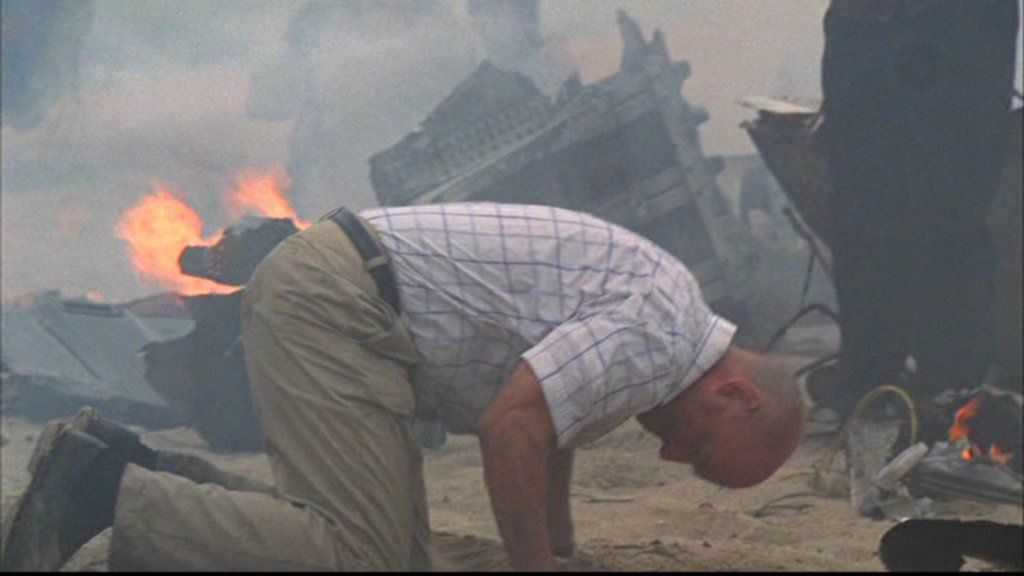
"I can't go back to yesterday - because I was a different person then." - Lewis Carroll, Alice's Adventures in Wonderland
After the Pilot episodes, we in the audience had to land on our feet trying to chase down this story that immediately began to race ahead of us. It got real weird real fast.
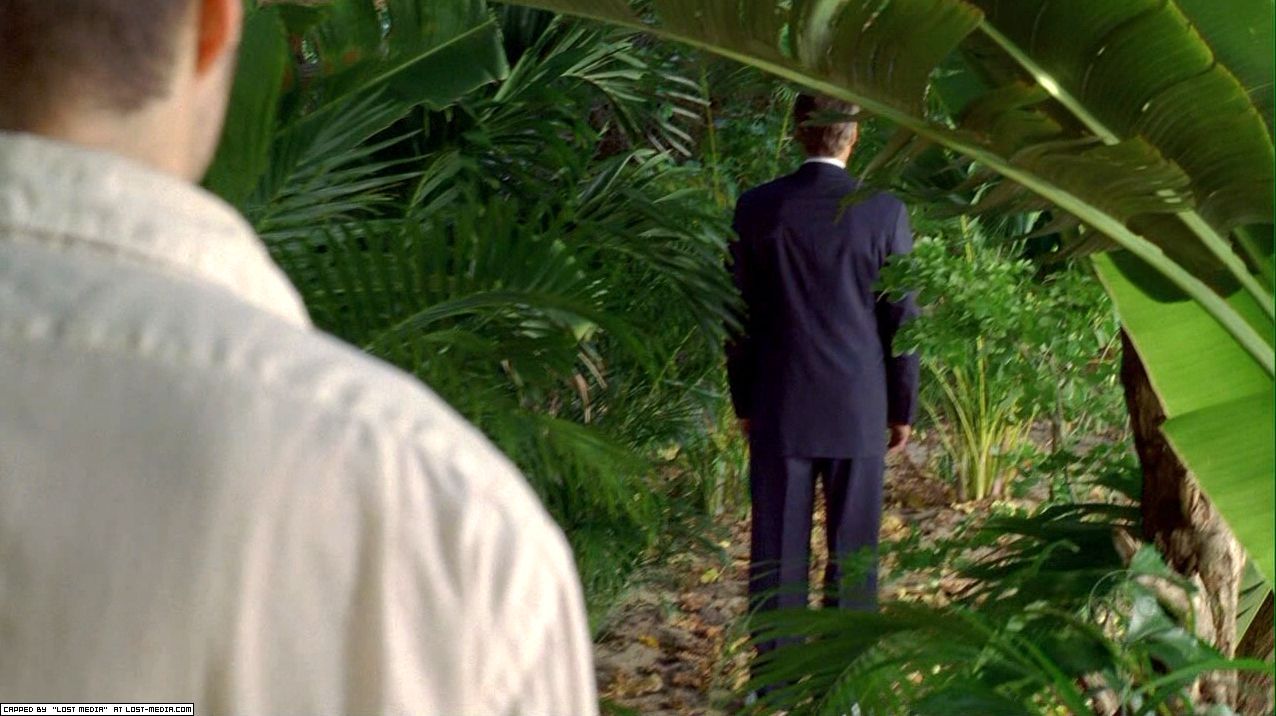
These three episodes introduced the most profound and lasting themes of Lost. The first threads of the basic Lost themes - themes of Manhood and Destiny, of Magic, Mystery, Illusion, themes of Life and Death and Life beyond Death – all began to weave into the fabric that has become the great tapestry of Lost.
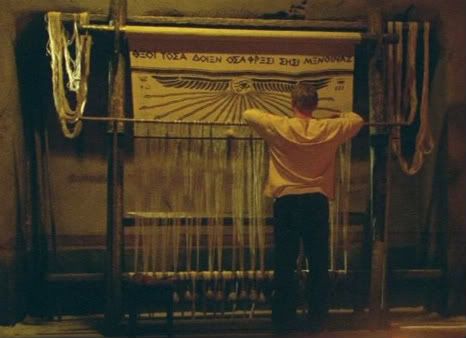
Not the least of these threads was the relationship that in Season One seemed destined to be THE central relationship in the story. Time has dulled that impression, at least for me, because Jack and John have only rarely shared screen time lately, divorced as they've been across the time space continuum. But Reset-Rewatching the early days of Lost, it's hard to tell which guy we were supposed to be watching, which one was supposed to be dominant, which one - if either one - was meant to be our hero.
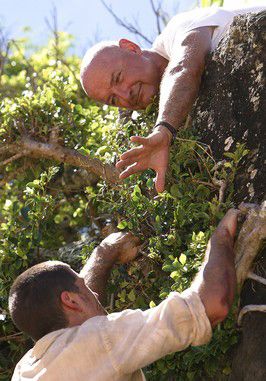
In the aftermath of the crash, Jack was in a state of shock,
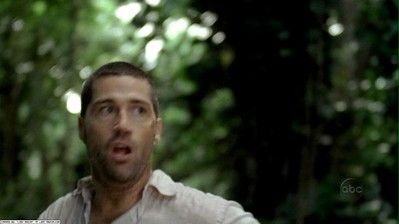
but for John, it was more like a state of grace.
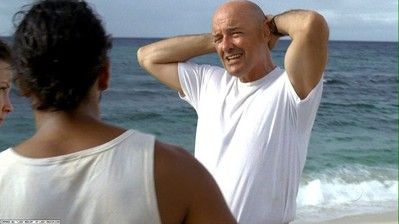
In the next three episodes after The Crash, all the survivors learned to accept the heavy reality that no rescue was coming. They were truly Lost. Abandoned.
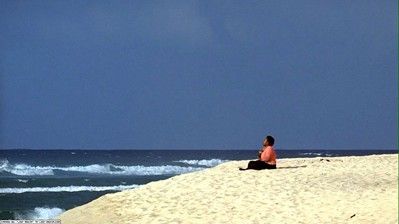
They had to try and survive, however ill-equipped they might be for the task.
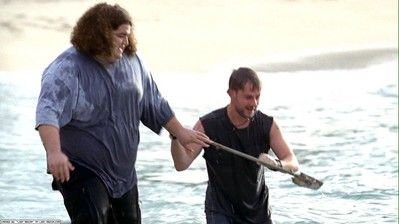
They looked for food.
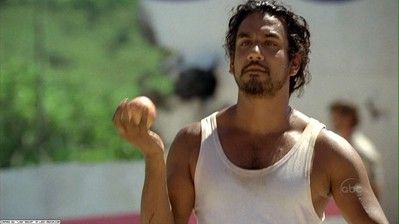
They even began to commit small kindnesses to their enemies.
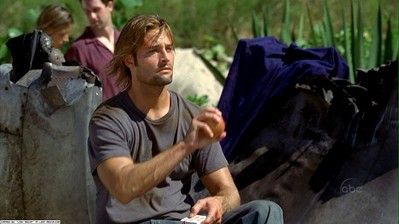
They burned the dead.
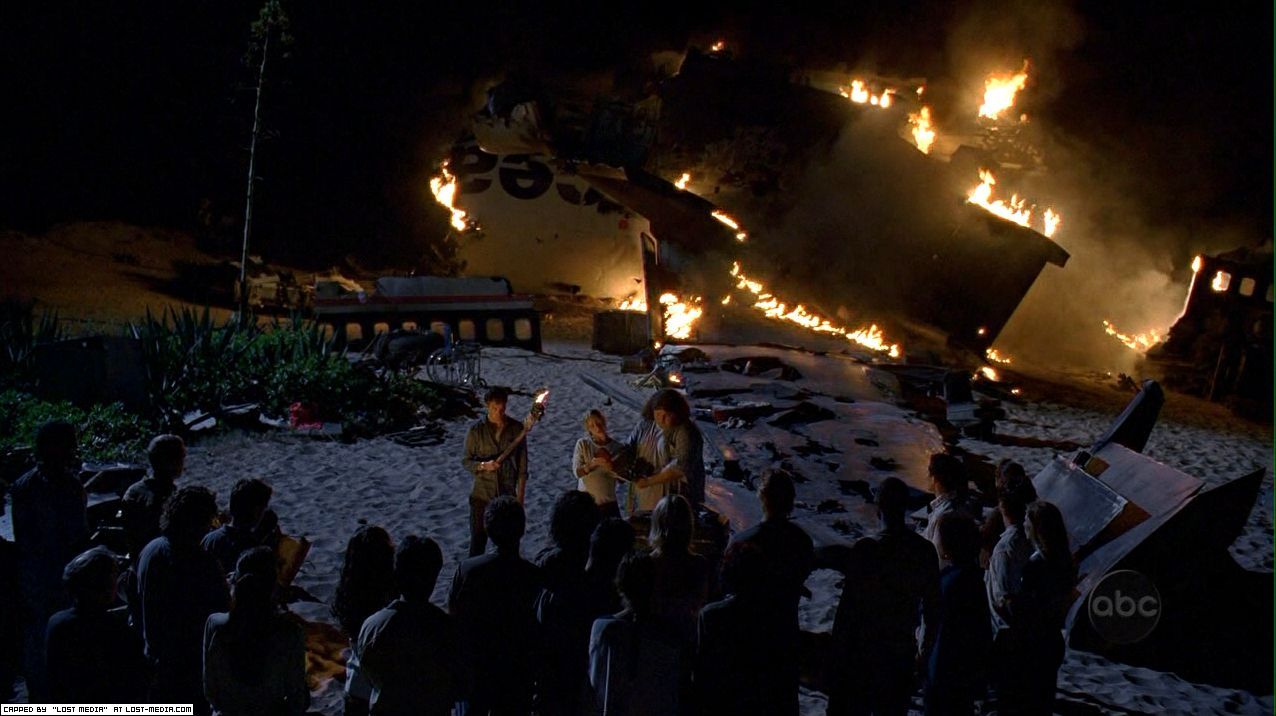
They tried to do right by those the Island had not chosen to save. In another touching nod to the then-recent 9/11 tragedy (or at least it felt like that to me) there was The Reading of The Names.
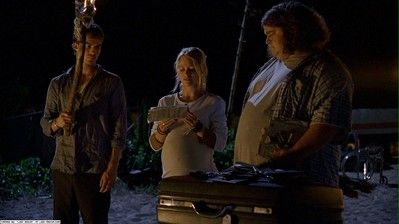
It was a good moment for Claire. While Jack griped about trying to "sort through everyone's God", his sister Claire simply remembered that each individual soul was special in his or her own way, even if it was just because she wore corrective lenses or he would have been an organ donor. Each of them had been special enough to love someone, and to be loved.
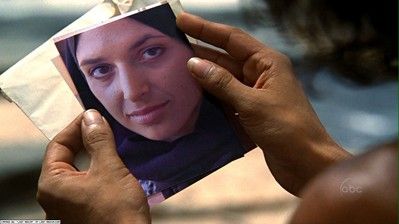
These early episodes were a time of discovery, a time of constant Firsts. There was the first Great WTF Shock Ending (which was also, incidentally, THE moment that hooked me on Lost for good).
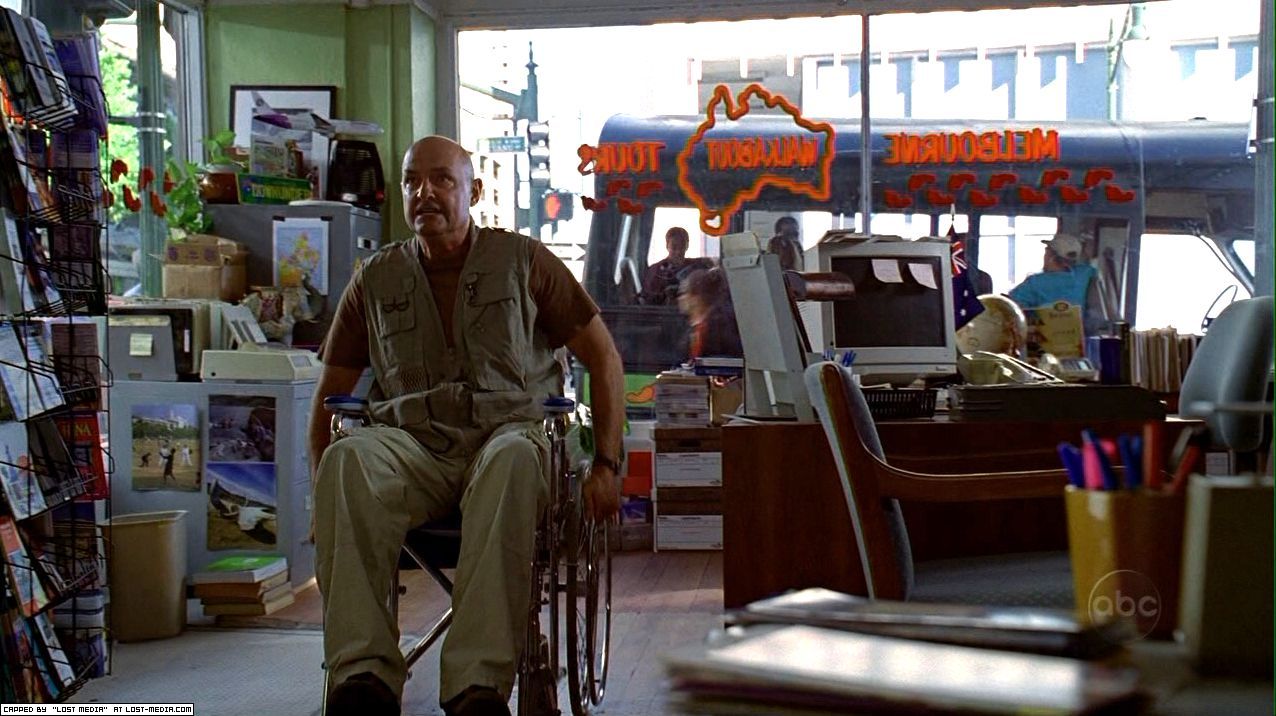
The first of those fantastic Perpetual Tiki Torches.
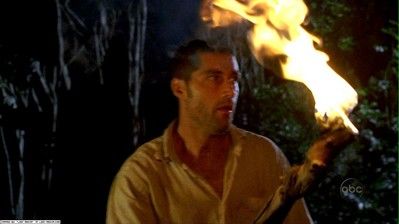
First time Jack bitched out Kate!
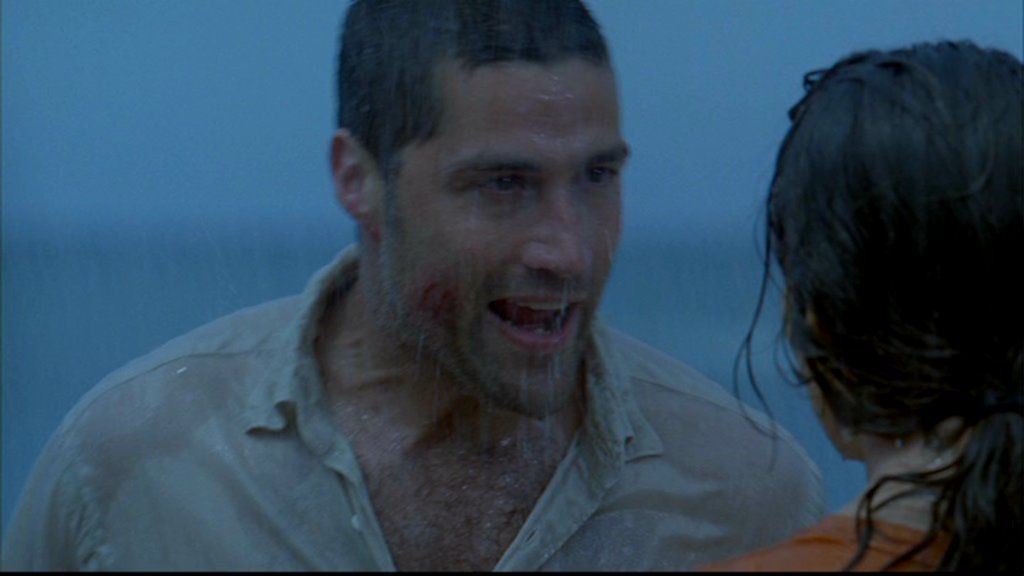
First time Kate and Sawyer rolled around on top of each other in the jungle!
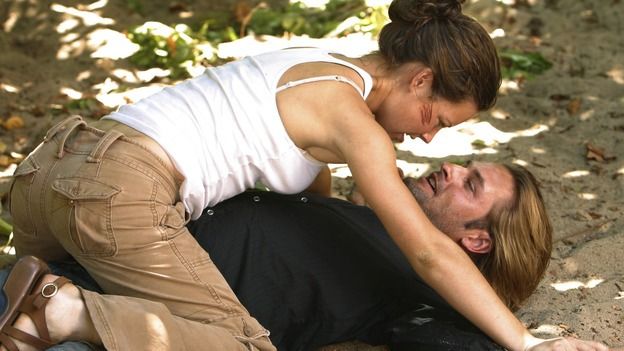
First Jears!
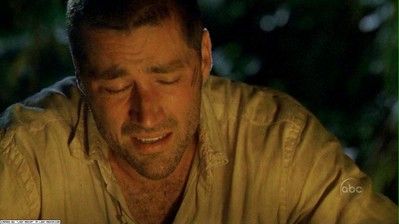
First Bunny!
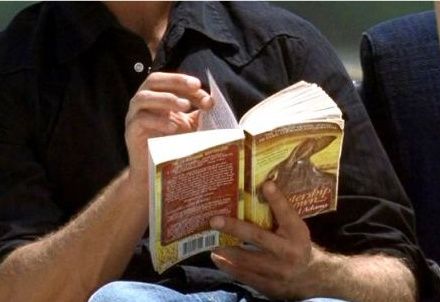
But not everything we thought we saw in Season One turned out to be lastingly important.
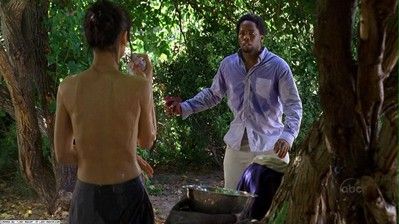
Walt made the rain stop, but I have a feeling we'll never find out what was supposed to be so bloody special about him.
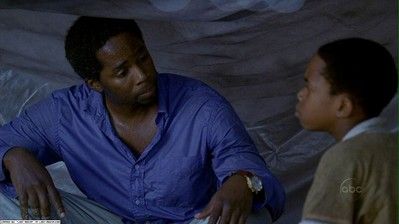
We never found out why everyone was running around after Jack begging him to please Please PLEEZ! be TEH LEADER,
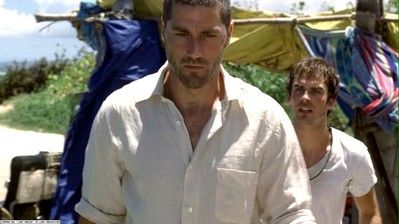
when Sayid already was one.
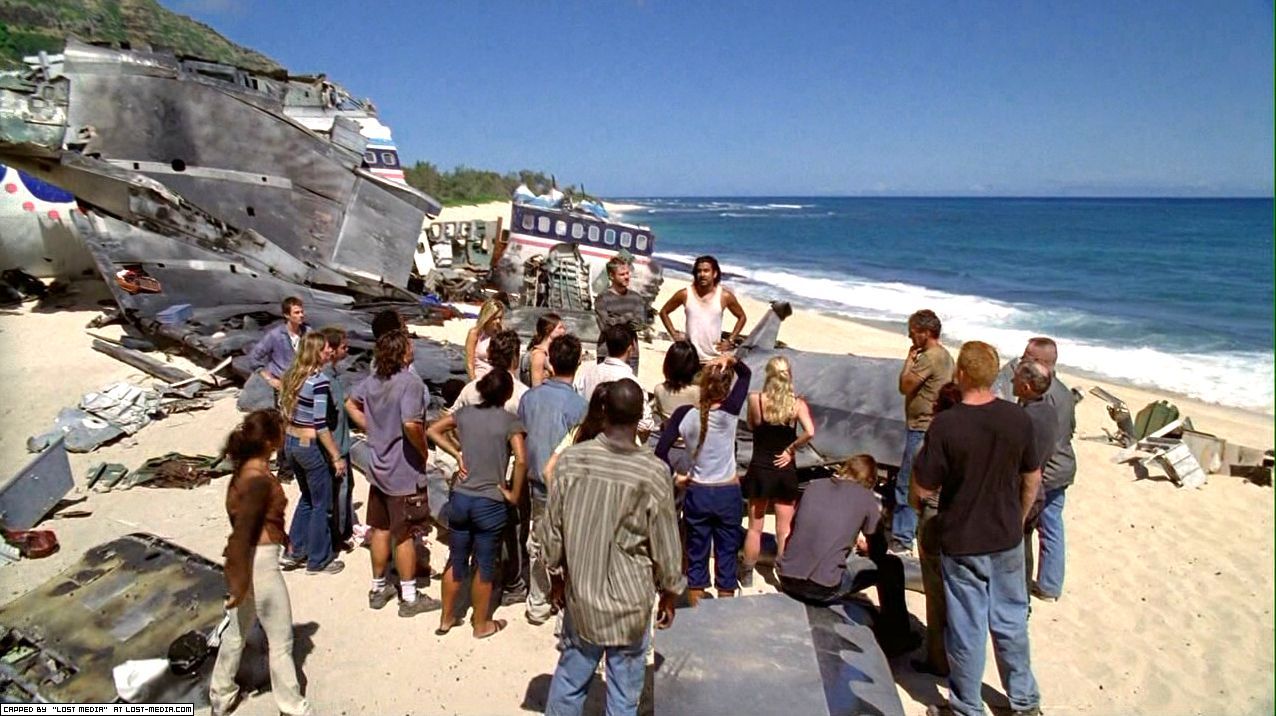
Not every budding theme we thought we saw in S1 was intended to bear fruit. There are boars in this story, but it’s not really like Lord of the Flies.
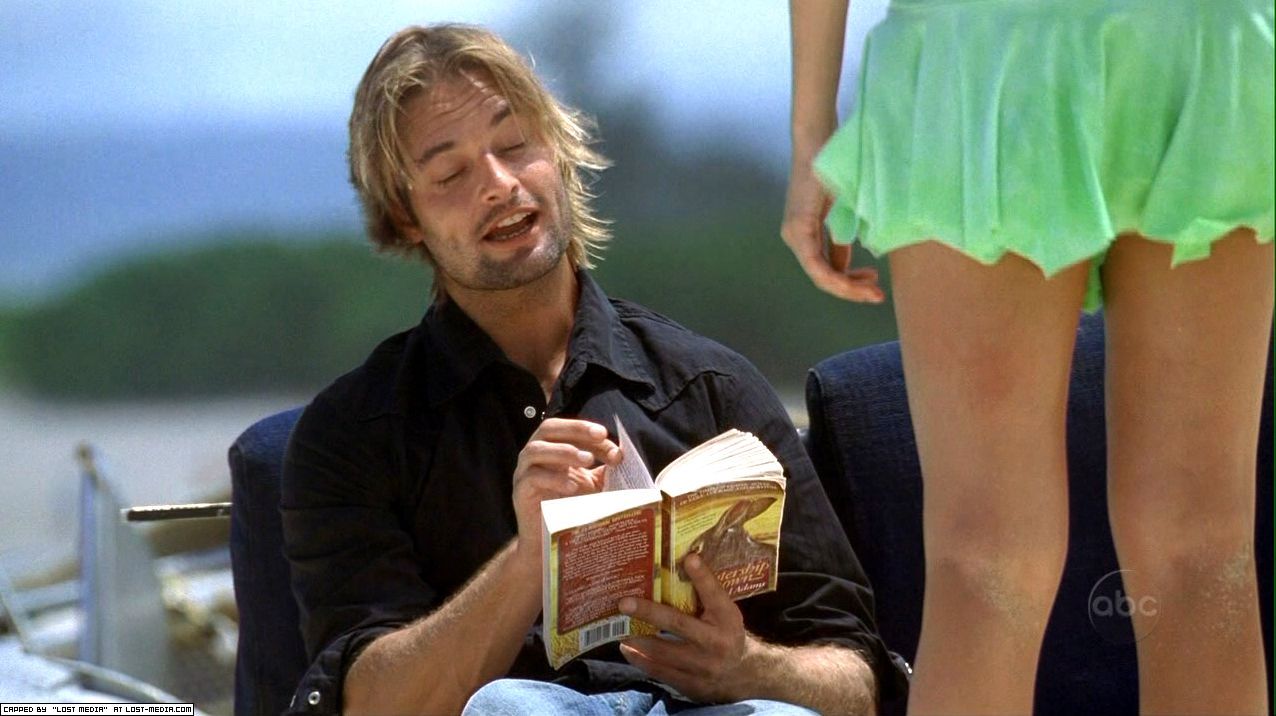
Sawyer used his wiles to harvest raw materials like an Ayn Randian hero of gloriously selfish capitalism. Meanwhile Jack was exhorting the proletariat to cooperate selflessly for the common good, with a line lifted straight from the great socialist anthem, “The Internationale”.
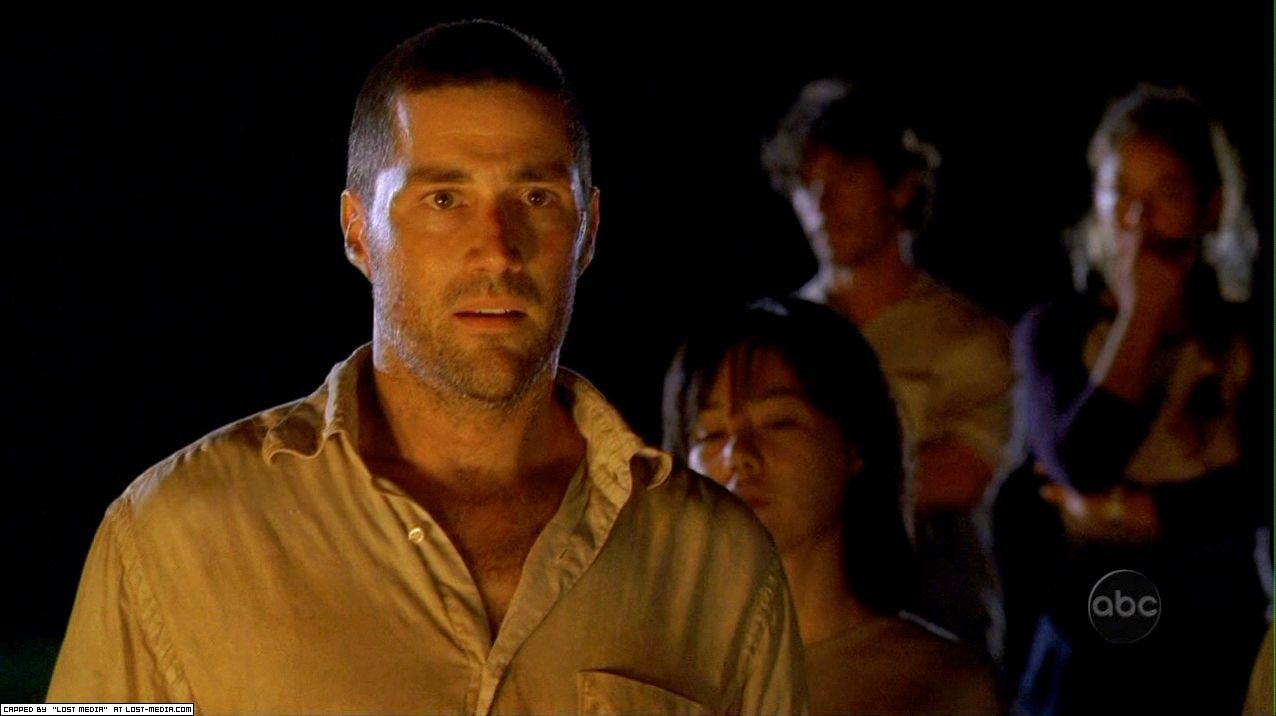
"Come greet the dawn and stand beside us
We'll live together or we'll die alone. "- Internationale.
Unfortunately, Lost never went anywhere as a sociopolitical allegory. I know, I know, the whole point was just that Jack was Good and Sawyer was Baaaaad.
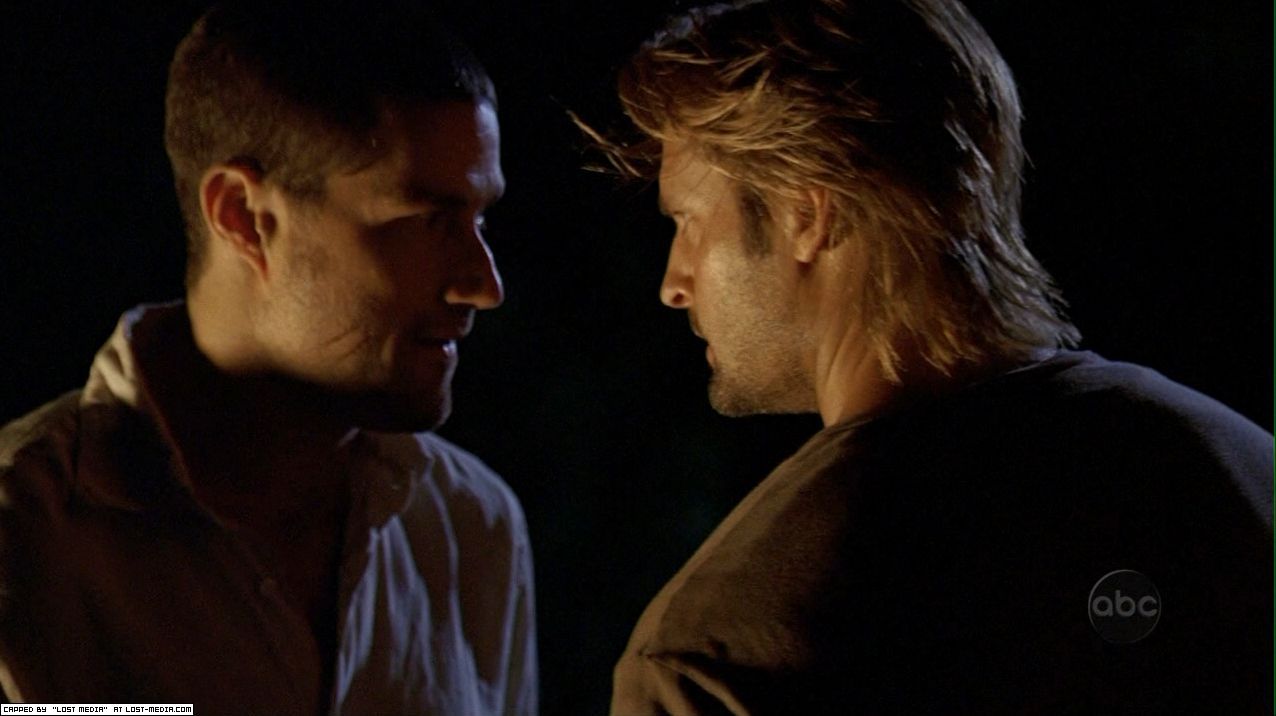
At first, when Lost was new, they pretended this stuff would be easy. They gave us a false sense of security that this would be a simplistic morality tale of black hats and white hats, good guys and bad. Sawyer and Kate connived the dubious mercy killing of the Marshall, but naturally, the worthless Sawyer fucked it up. On the surface, it only proved that if you want something done right on this damn Island, then there was no point in sending anyone other than Hero! Jack! to do it. But Sawyer's anguish was one of those fleeting windows that opened in those early weeks where we glimpsed just for a passing second the human being inside the animal's shell.
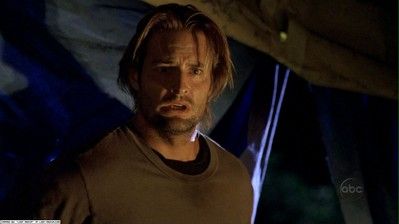
Plus Sawyer, of course, was right! He did see "the big picture" that Jack couldn't. What was Jack's plan? To pour all the antibiotics down the drain into the doomed man, stealing them from the living who were sure to need them later. It was a battle of earthy pragmatism vs. airy idealism, a classic dichotomy. But the audience mostly missed it, because we were being lulled into dismissing Sawyer as just a big handsome asshole.
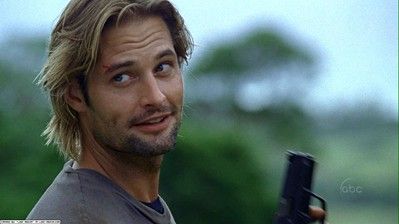
Kind of like how we were misled into thinking that Jin was nothing more than an abusive control freak of his innocent, terrified wife.
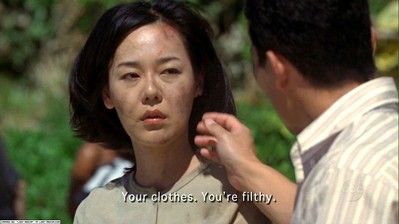
Or that Hurley was only there for us to laugh at, as our fat, cuddly clown.
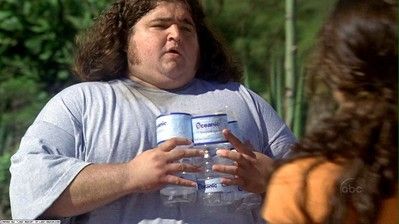
(Well, that one was kinda true.)
The misleads were there to distract us from just how plain and simple some of the themes really were. Kate's episode was titled Tabula Rasa, a belief much favored by the 17th century philosopher that our hero John Locke was destined to be named after.
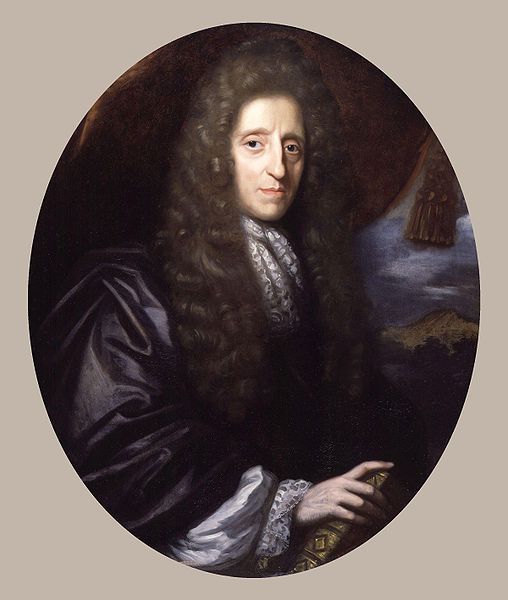
"Tabula Rasa" means literally "scraped table". (Tabula is also the Roman name for the game of Backgammon, but we probably don't have time to get into that one now.) In the writings of 17th century John Locke, "tabula rasa" was a term used to describe the mind of the newborn babe - empty, blank, an open space within which any possible spirit can build its castle.
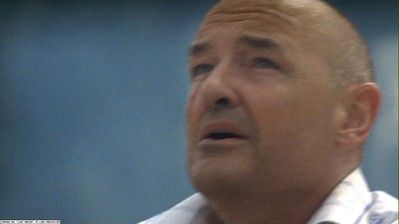
If we all start out blank, then the thing we call personality, or identity, is just the random picture that happens to get drawn on each person's generic slate. So who are these people, these spirits inhabiting these shells? For starters, who is Kate?
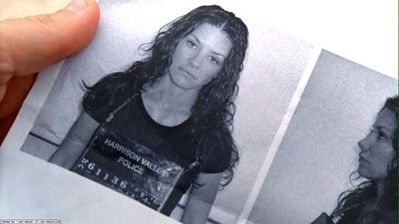
The historical figure Kate reminds me most of is Richard Kimble.
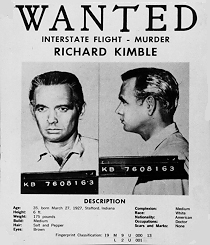
There's even a One-Armed Man mixed up in the middle of the story.
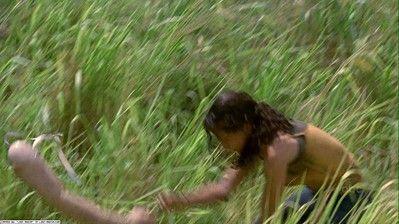
Like poor old Doctor Kimble, Kate just seems too nice to be a most wanted criminal tracked across the globe by a relentless nemesis.
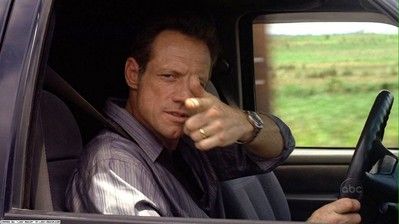
She saves the life of Farmer Ray, the guy who ratted her out for a couple of mortgage payments. She even saves the life of the Marshall when the plane is starting to crash. The group trusts her so instinctively that they give her their only gun. Of course, there is the inconvenient complication that, unlike Richard Kimble, Kate is basically....guilty.
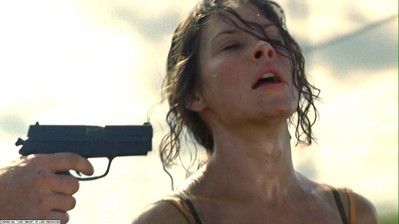
Throughout the first season, we never found out What Kate Did.
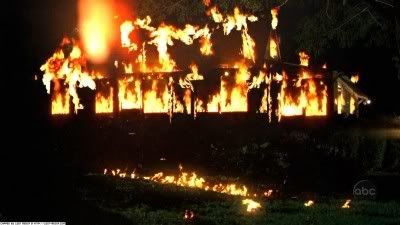
We were left to try and helplessly imagine what this angel faced girl scout could possibly have done to earn the obsession of the hardbitten G-Man. What could she have done that was so bad? Was she a child molester, an axe murderer, a spy? Was her evil on an epic scale? Was she the Catwoman?
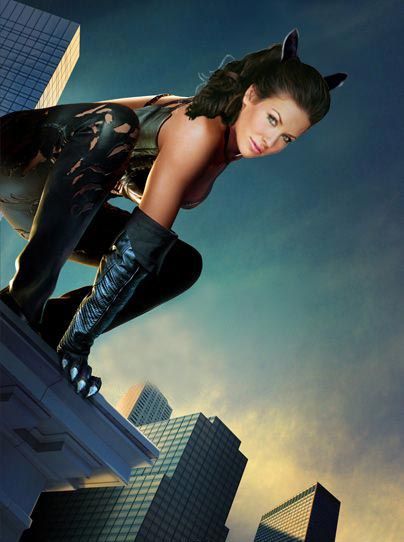
None of the possibilities seemed possible. Maybe Edward Mars was one of Kate's jilted lovers?
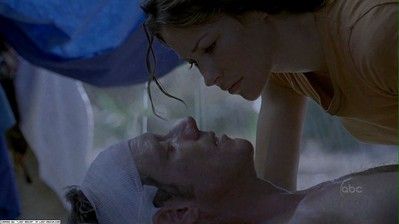
Did he just really, really hate Patsy Cline music?
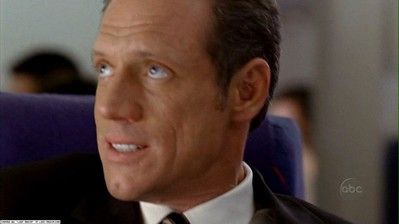
It was always hard to know what to think about Kate. It never seemed to me that they put much care into the writing of her. She said she was a vegetarian, but we all saw her chowing down on pork like she was Ponyo.
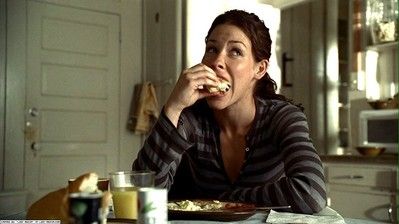
So was she lying? I mean the food supply on the Island consisted of fish, boar
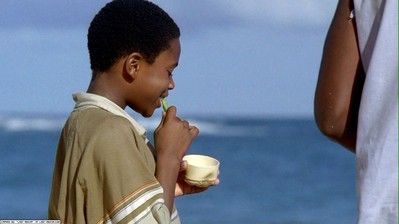
...and toothpaste. Hard to see how a vegetarian could get enough calories to climb out of bed, let alone climb trees like Tarzan.
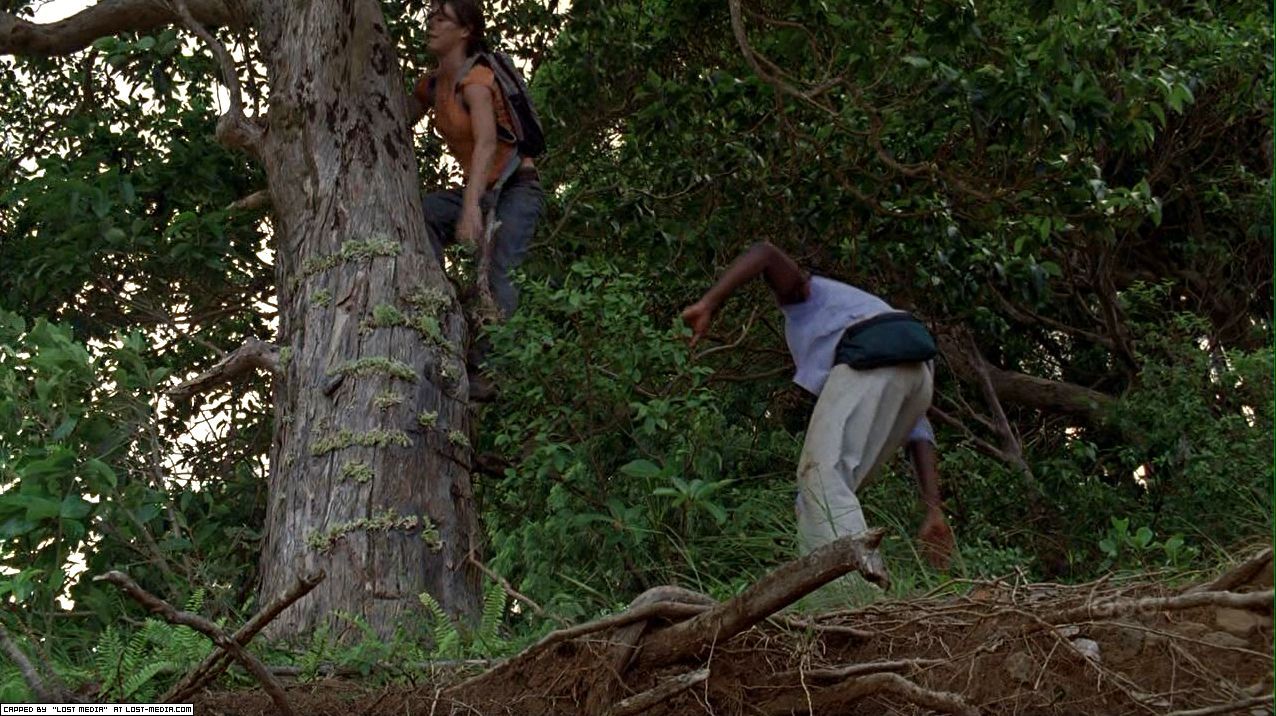
Probably, since it was Kate, just a girl in a story that's all about men, it didn't matter that much. It's a small example, but it illustrates how the writers never seemed to try all that hard with Kate. The great intrigue about What Kate Did eventually went pffffft. Sure she killed her Dad in cold blood, but he wasn't very nice, and besides - isn't she purty? As we enter Season Six, Kate remains a sketch of a character that the writers seem never to have fully invested in. Sadly, the side effect has been that the audience, over time, has come to feel about Kate pretty much the same way the Marshall did.
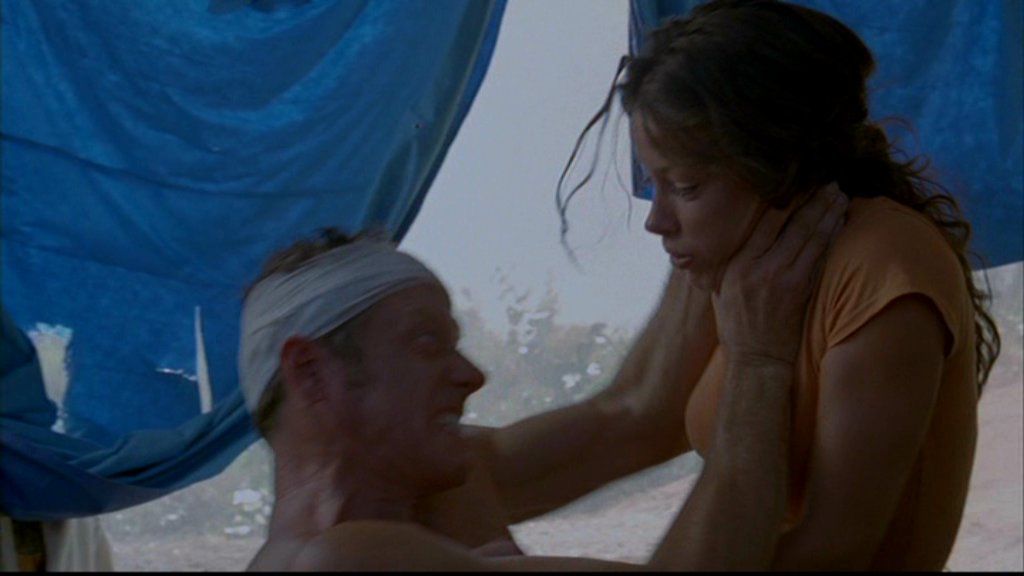
In stark contrast, the characterizations of Locke and Jack were masterfully done. From the beginning you could see how much care and thought went into how the writers introduced these two,
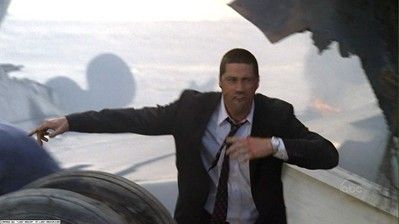
their yin and yang,
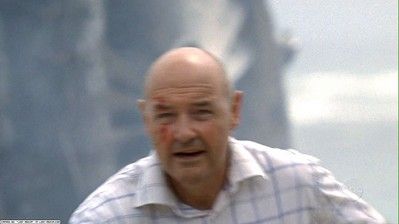
fire and water,
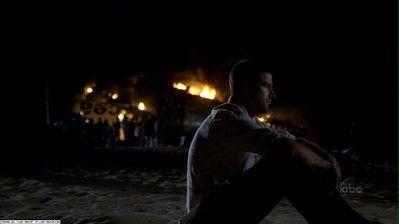
light and dark.
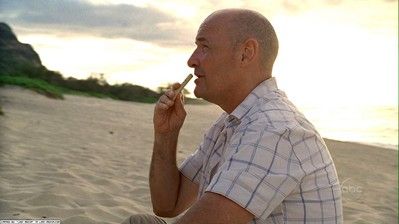
Of course, which one was the light one and which the dark is never made entirely clear. We're supposed to keep guessing. Are these guys the Good Twin and the Bad Twin?
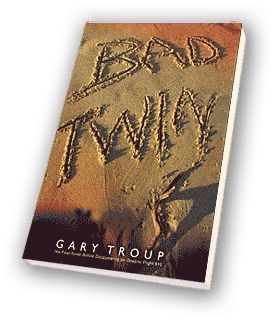
Do they represent a dichotomy or a unity? Or is that question just another one of the many misleads we're always getting lost on?
The eye is the window to the soul, and we enter each man's soul just that way. We see his eye opening.
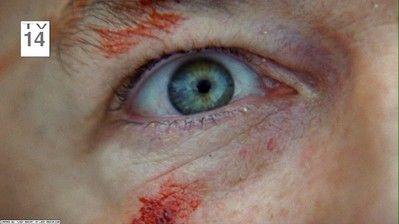
He's flat on his back.
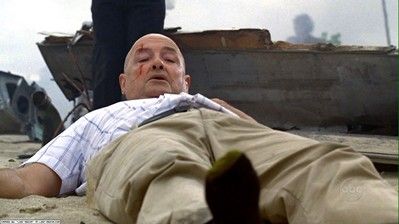
This splat position is one we'll see both Locke and Jack in many times over the years, especially Locke.
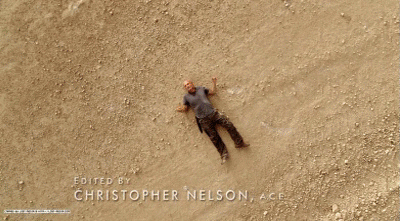
In fact, in White Rabbit, we actually get a rare sighting of the difficult double back splat.
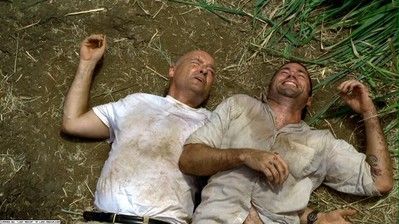
The two men are complementary. Together they instinctively provide for and sustain their fellow survivors. Locke finds food. Jack finds water. Psychologically, there is also some kind of desolate symmetry. Jack's always been told he doesn't have what it takes.
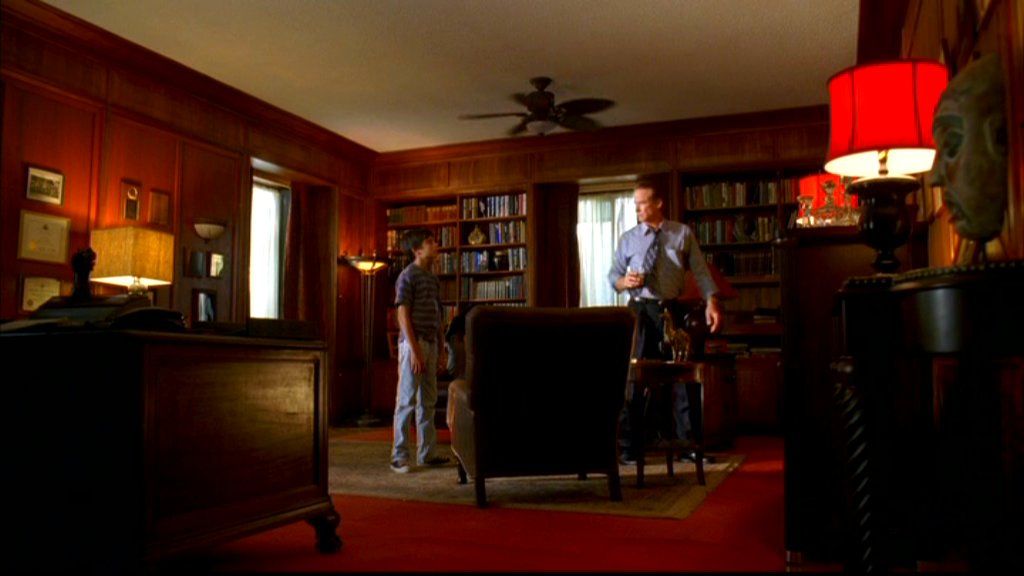
And everyone's always telling Locke what it is he can't do.
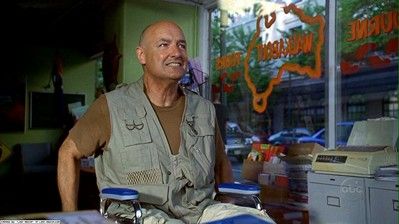
Although it seems they're working together, there's a sense early on that they're not on the same side. In a story that just left us with a very foreboding sense of impending war,
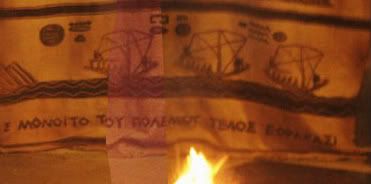
(Translation: Only the dead have seen the end of war.)
we remember that we first met Locke as a "Colonel" playing Army board games in the lunchroom at the box factory.
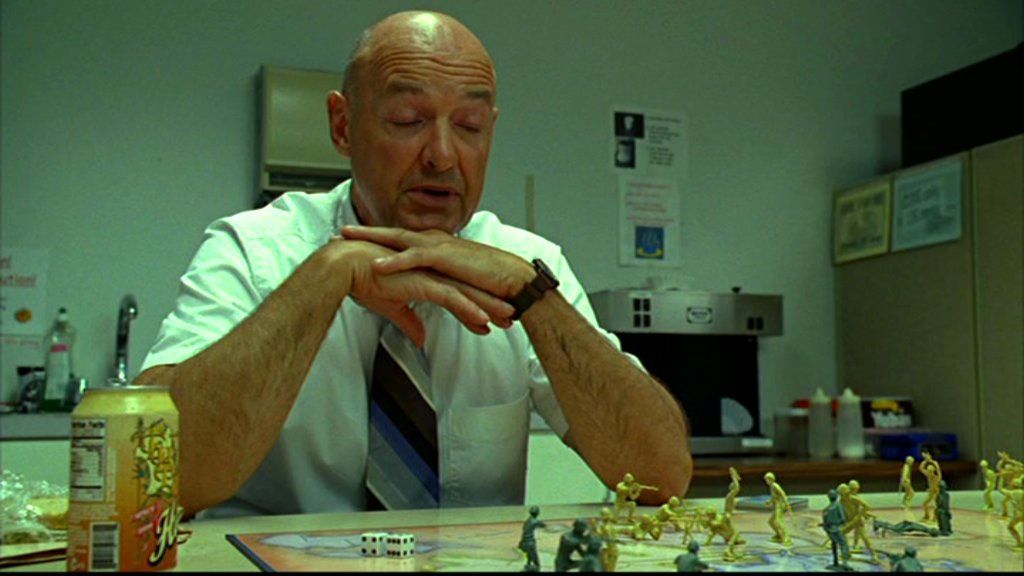
Knives have always been important in Locke's story. They are a symbol of manhood.
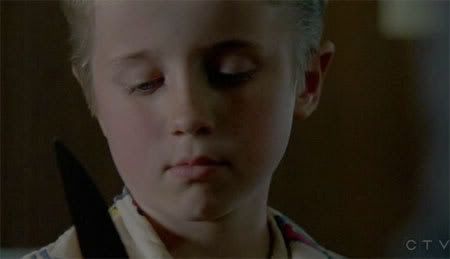
Of potency.
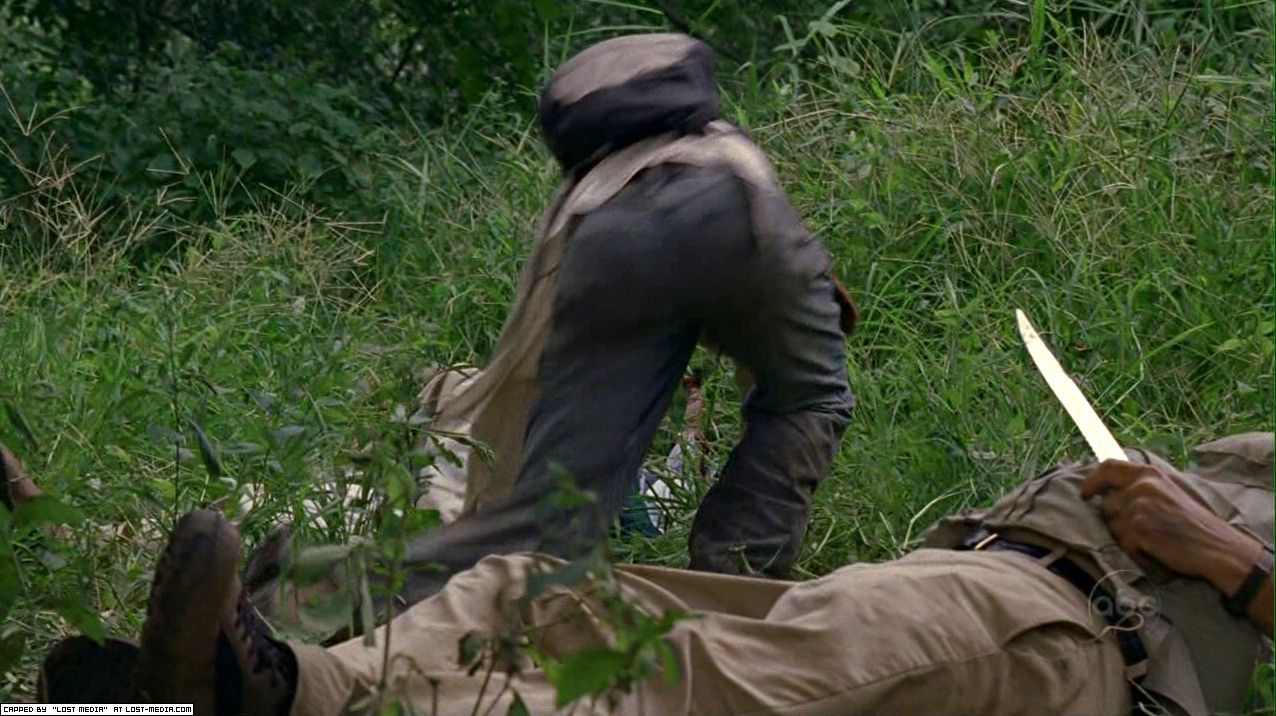
The opposite of the disabling wheelchair. Knives make people sit up and pay attention. A man who knows how to throw a knife is automatically Special.
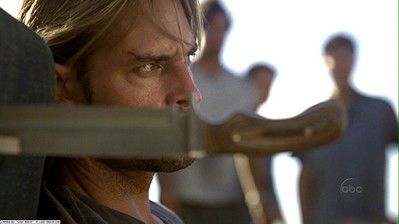
The Knife is the symbol of John Locke's DESTINY.
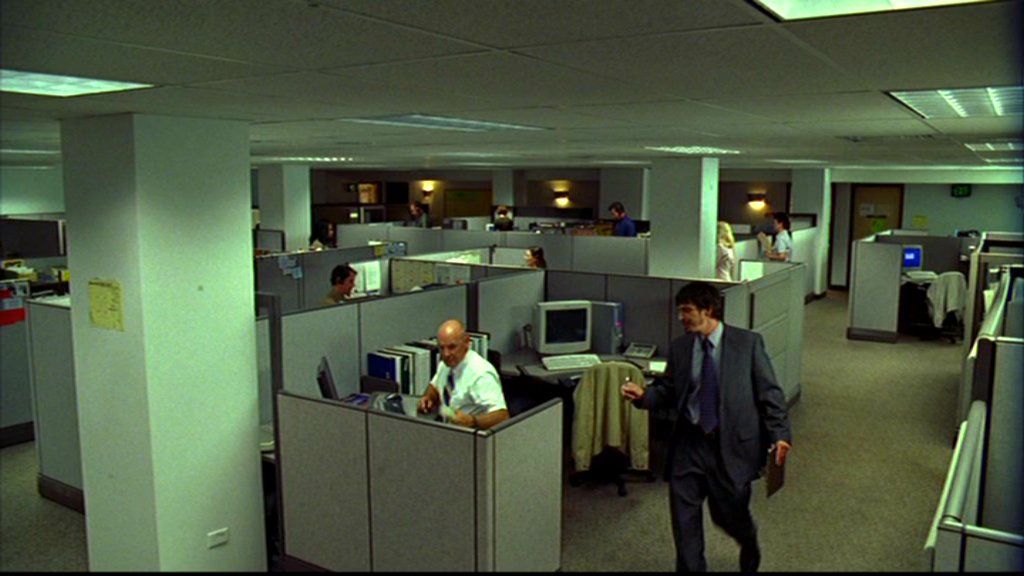
Locke may have been a sad, sad cubicle nerd stuck doing Totally Pointless Shit reports
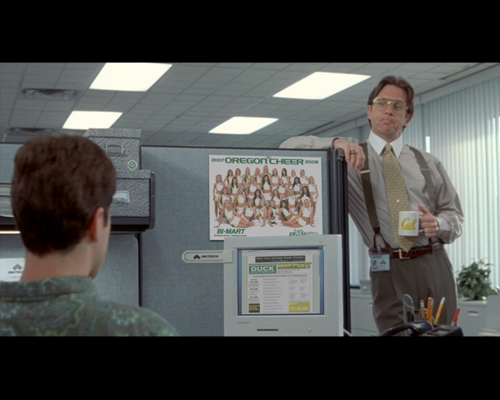
for a Lumbergian little douche named Randy Nations.
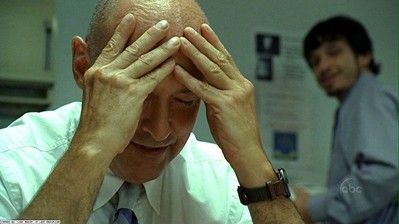
(Speaking of which I wonder if we'll see Lost's low rent Zelig again in Season Six?)
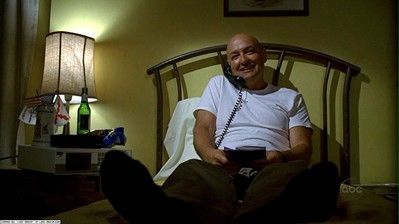
Locke may have been reduced to paying a sex phone worker to pretend to be his girlfriend. And he may have been humiliated when he was rejected for the Australian walkabout tour because he couldn't...uh, walk. But Locke was more than a whackaloon survivalist with delusions of grandeur, even if that's exactly what he often looked like.
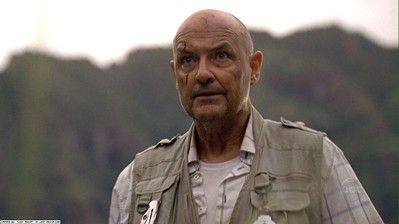
Locke carries the weight of the story's most central theme on the shoulders of his bright white T-shirt. Locke believes in DESTINY, a theme even the ABC promo department can understand.
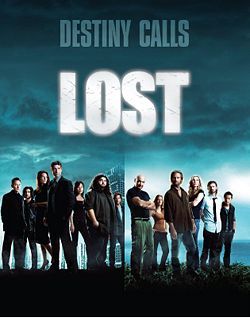
Destiny is the thing you can't escape, the thing you can have absolute faith in. The things you are destined to do are the same as the things you have already done. With destiny, the future is irrefutable, irreversible, undeniable, just like the past. Locke had learned that the hard way.
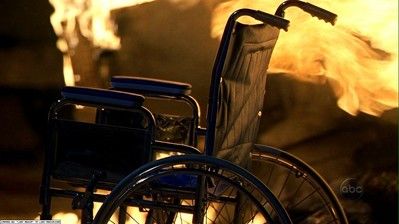
The Island had come for John.
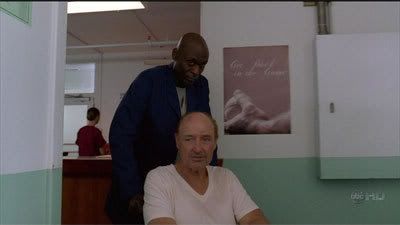
As he told Jack at the fireside, everything that had happened to them had happened for a reason. Everything. But in the early days, John Locke was the only one who understood that.
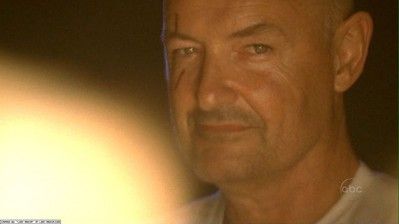
If the audience had been as tuned in as Locke, we might have noticed the signs all around us.
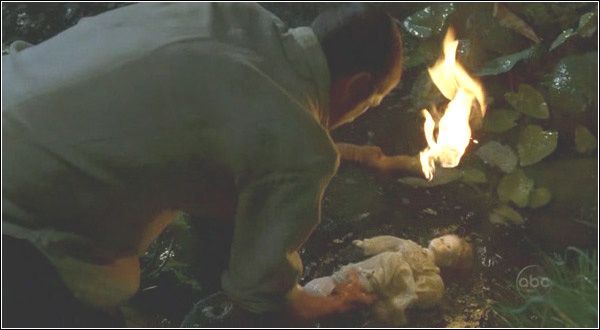
The toys and dolls in the wreckage were the first sign we received that Lost would also be a story about lost children. And lost childhoods.
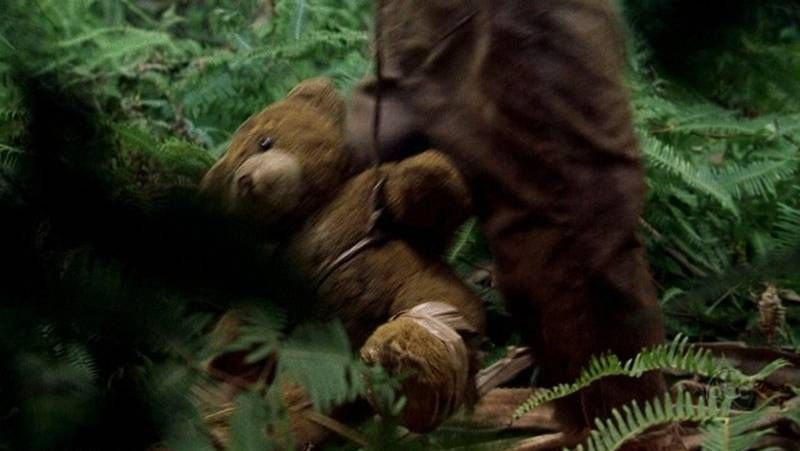
And what about this?
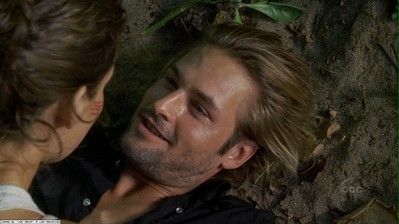
When Kate tackled Sawyer, he was delighted to have his birthday wish fulfilled - the one he'd made four years before. That was a throwaway line at the time, but it reverberates a little bit now, when we've seen how capriciously these characters have scampered around the timespace continuum.
There's also this. Does Charlie think FATE is LATE?
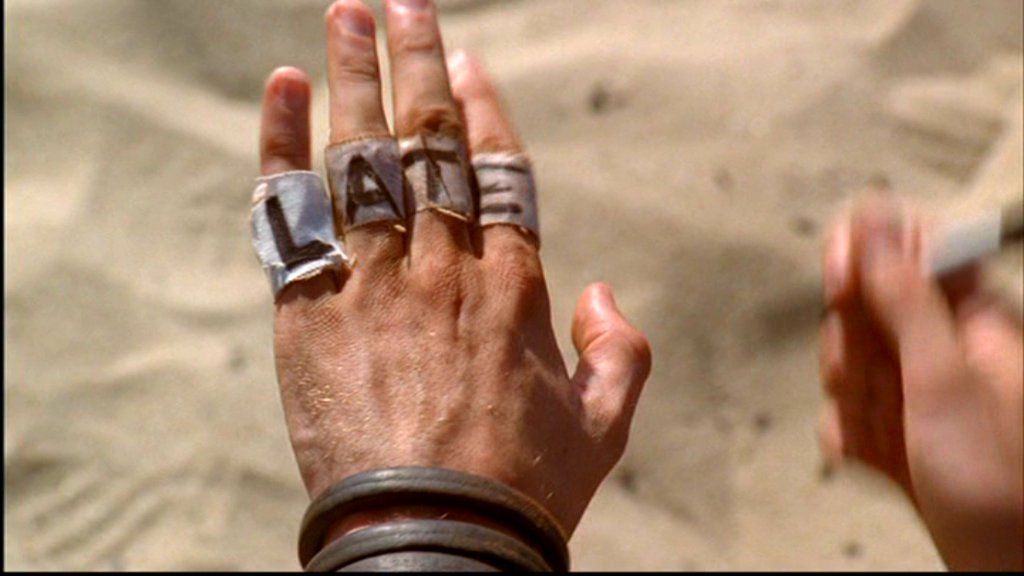
I don't get it. Unless we're supposed to read it backwards - in a mirror, through the looking glass - where it becomes ET AL, which translates from Latin (the language of The Others) as ... And Others. Get it? OTHERS!
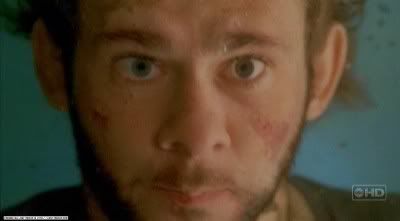
It was always Charlie's Fate to be done in by Et Al. He didn't know it then, but there was no way he'd ever escape it.
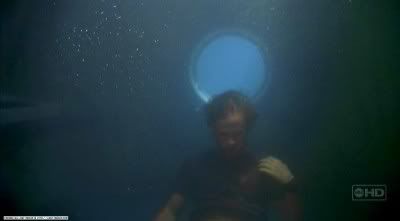
By the end of this group of episodes, even Jack had bowed to his Destiny and embraced his fated role as Boss of Everyone and all around Mary Sue.
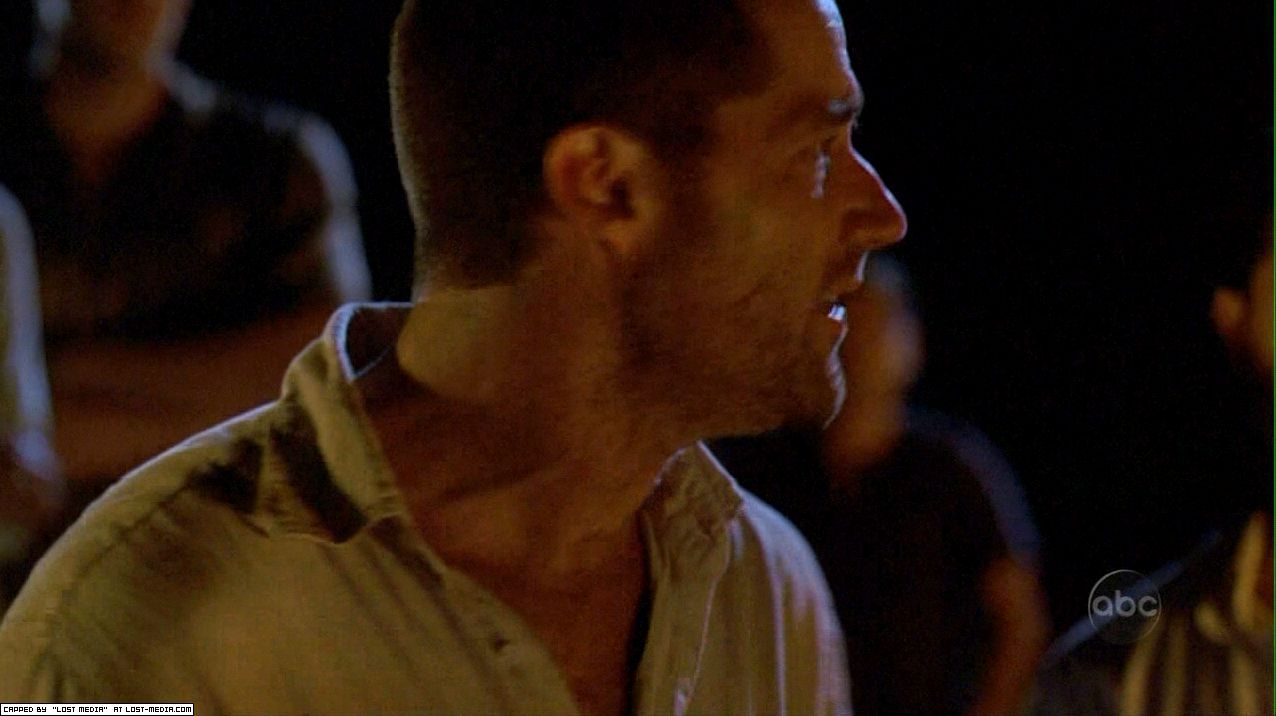
Locke describes a Walkabout as "a journey of spiritual renewal, where one derives strength from the earth. And becomes inseparable from it. " That's an incomplete description. A Walkabout is the rite of passage, the ritual of manhood for adolescent Aboriginal males.
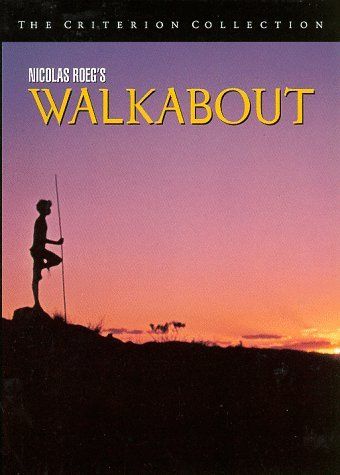
A Walkabout traces the Songlines and follows the Dreamtracks of ancestors who have died, but who still dwell within the ancestral landscape of the earth. We know that Locke is a great dreamer.
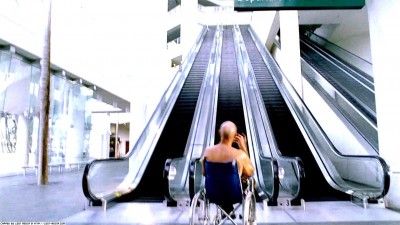
And we've also seen him embrace the soul of his ancestors in ways we could never have imagined back then.
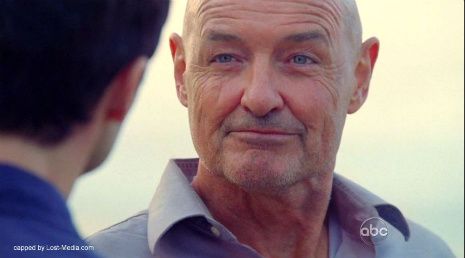
But just when did this conversion take place? There's a moment in Tabula Rasa that is striking and scary. Locke uses the whistle to finally bring Vincent, the invincible dog, back to his mystical young master Walt. He generously allows Michael to be the hero, knowing that he desperately needs to build some cred in the eyes of his boy.
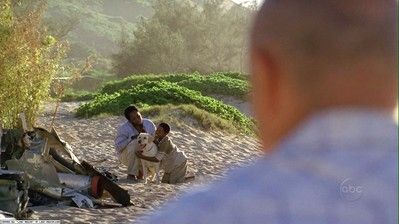
But, as Locke watches over what was a deliriously happy moment for the little family, his expression is not happy at all. In fact, it is downright sinister.
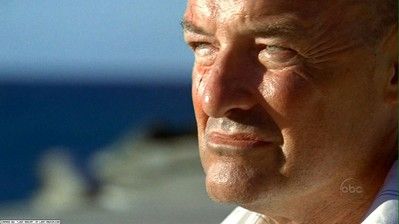
It's almost as if he is - suddenly - someone different.
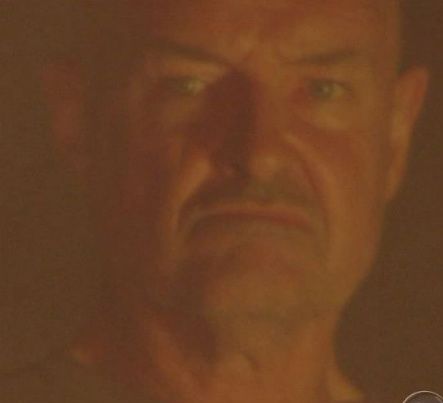
We can't yet read what Locke might be thinking as he scowls over this happy scene. But it's one of those scenes that means a lot more on the Rewatch, because of all the things we know now, or things we don't know. To tell you the truth, I'm so openminded on this story right now, I even wondered if there wasn't something going on there between Man and Dog.
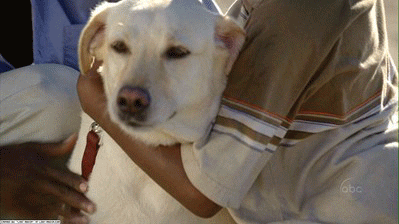
"But I don't want to go among mad people," said Alice.
"Oh, you can't help that," said the cat. "We're all mad here."
Locke ends up on the Island because he desperately needs to take a Walkabout, but it's Jack who hears the Dreamsongs while he's seeking his manhood in the wilderness.
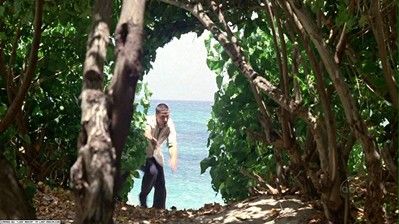
"And if you go chasing rabbits
And you know you're going to fall" - Jefferson Airplane, White Rabbit
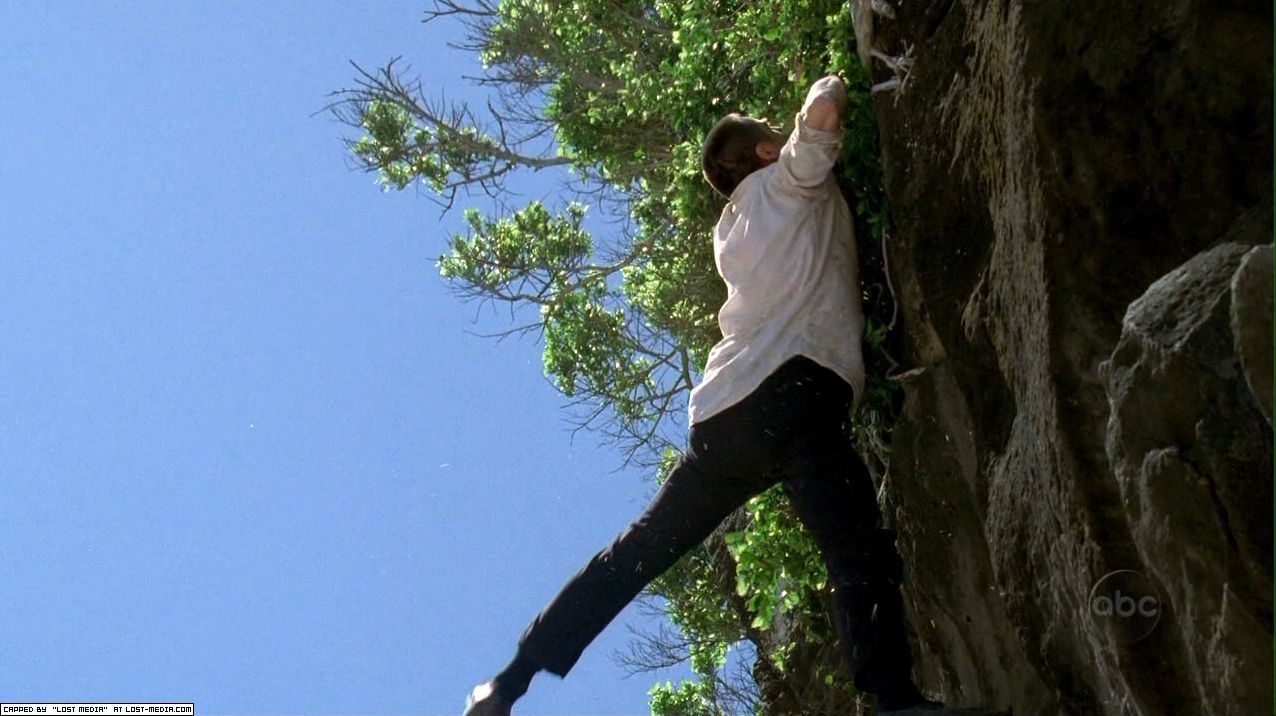
The White Rabbit that Jack chases is the ghost of his father. The dear old dad he was bringing home to bury. Christian is someone we've come to know almost as well as we know Jack, but we still don't know why he won't leave Jack alone.
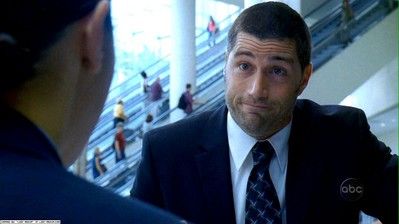
The clue may be hidden somewhere in the symbol the writers have chosen to represent him. Lost is about lots of things, but throughout the years, it's always been About Bunnies.

Rabbits represent fertility. Rabbit's feet bring good luck. Rabbits are used in magic tricks. And in a Game like Lost, images of rabbits have turned up in all kinds of tricky places.
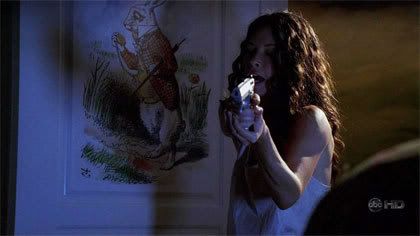
Can you find it? You have to really keep your eyes peeled when you watch this show. It's not that hard to find this bunny:
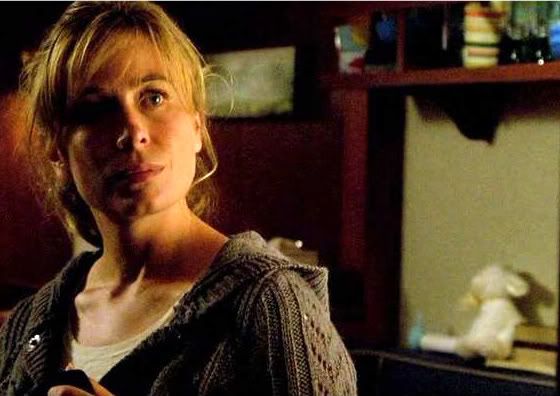
But this one's a toughie:
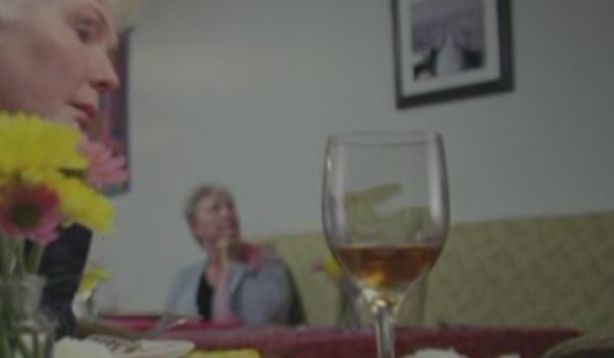
But by far the main way Lost has used rabbits is as part of its ongoing Through the Looking Glass metaphor.
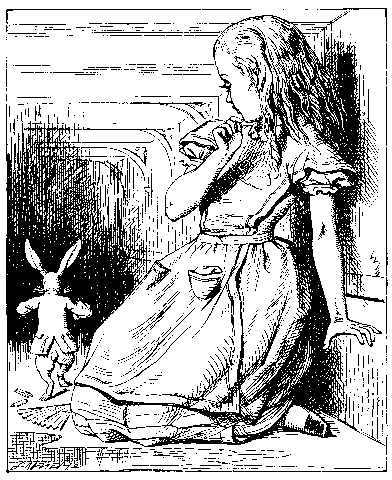
Like Alice, Jack chases his white rabbit down a hole into a world where logic and proportion have fallen sloppy dead.
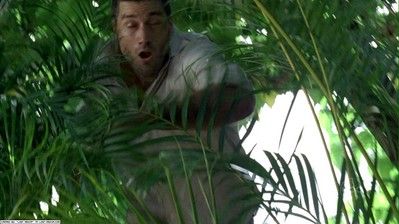
Jack's Dad has been bringing the crazy into Jack's life for a long time. We saw Jack laying on the ground as a boy
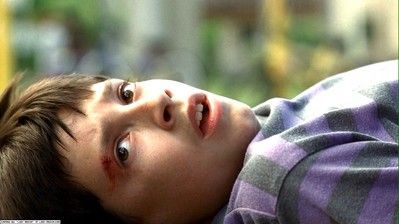
his head turned exactly as it was when we first saw him on his back in the jungle.
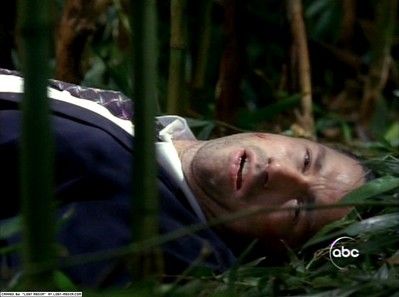
We see that Jack's dad decided to write on his son's blank slate with a poison pen.
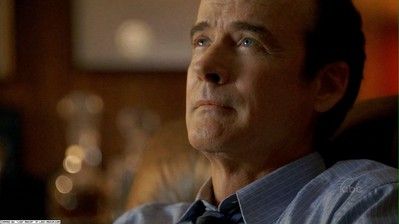
"Don't choose, Jack, don't decide. You don't want to be a hero, you don't try and save everyone because when you fail … you just don't have what it takes."
See? The way Christian talked to his kid in his Scotch soaked study wasn't all that different from the way the hookah smoking caterpillar talked to Alice from his mushroom. He didn't say Jack would fail because he didn't have what it takes. He said that he couldn't fail because he didn't have what it takes to fail successfully. Like Jack was destined to fail even at failing.
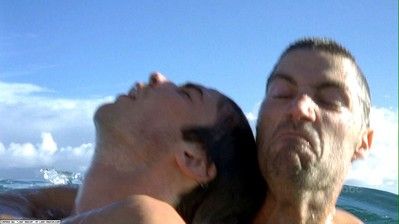
You can see why Jack didn't have the warm and fuzzies for his dad, even if it turns out that Christian had it exactly right about his super successful overachieving failure of a son.
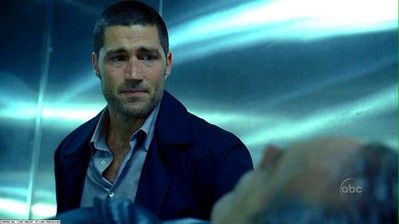
Jack had been chasing his father figure for a long time before he ran into him in the Jungle of Mystery.
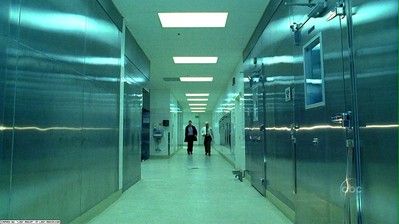
"I fled Him down the nights and down the days;
I fled Him down the arches of the years;
I fled Him down the labyrinthine ways
Of my own mind " - Francis Thompson, The Hounds of Hell
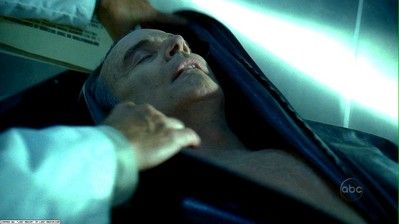
He thought he had finally put an end to it when he ID'd his pop's sodden corpse in the King's Cross morgue. King's Cross. What a wonderful place for Christian to die. It's a name that reminds us of another King who died on a Cross to redeem mankind from sin.
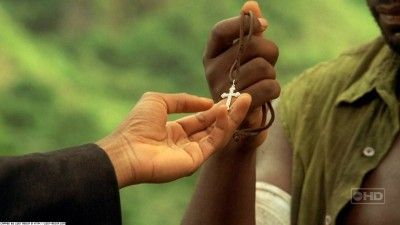
And while King's Cross - Sydney's red light district - is an appropriate place for a sinner like Christian to die, it's also a nice shoutout to the same place Harry Potter goes when he needs to transition away from the world of Muggles to the world of Magic.
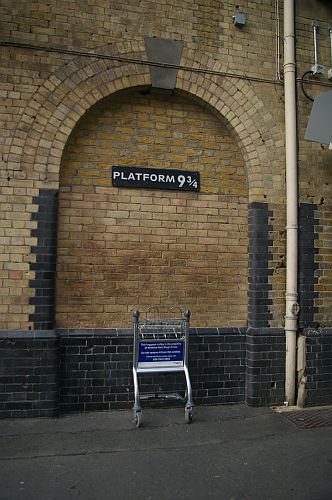
Now that Jack has made that transition through the looking glass of the Island, he's going to have to go back and forth a couple of times before he gets it. What happens when he does catch up to Christian? That's a part of the story that's still ahead of us. We've gotten so jaded with all the Daddy Issues on Lost that it's hard to remember how profound and mythic this first encounter with the Big Dad really was. Jack puts out his hand to try and touch the illusion of The Father
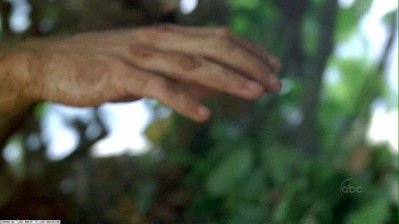
but he only ends up tumbling off the edge of a cliff, hanging at the end of his rope. And at the very last second, just when he's about to fall to his death, what does he see? A hand reaching out to bring him back to life, a hand belonging to the unseen ...
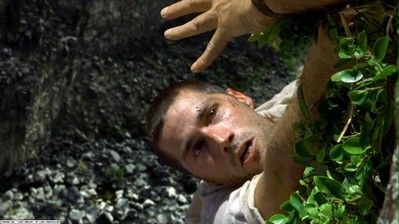
...Locke.
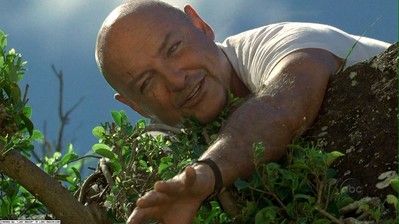
Locke has a long heart to heart with Jack, then leaves him alone in the middle of the night, in the middle of the jungle, with the monster growling out there in the darkness. After all, it's not a proper Walkabout unless you're by yourself. There's a sound...of clinking ice cubes in a Scotch glass...and a whitish figure passes through the trees behind Jack. He leaps up to chase it. He doesn't catch Dad this time either, but he does find the thing he's been looking for, the thing they all need, the source of life itself. Finally. Water.
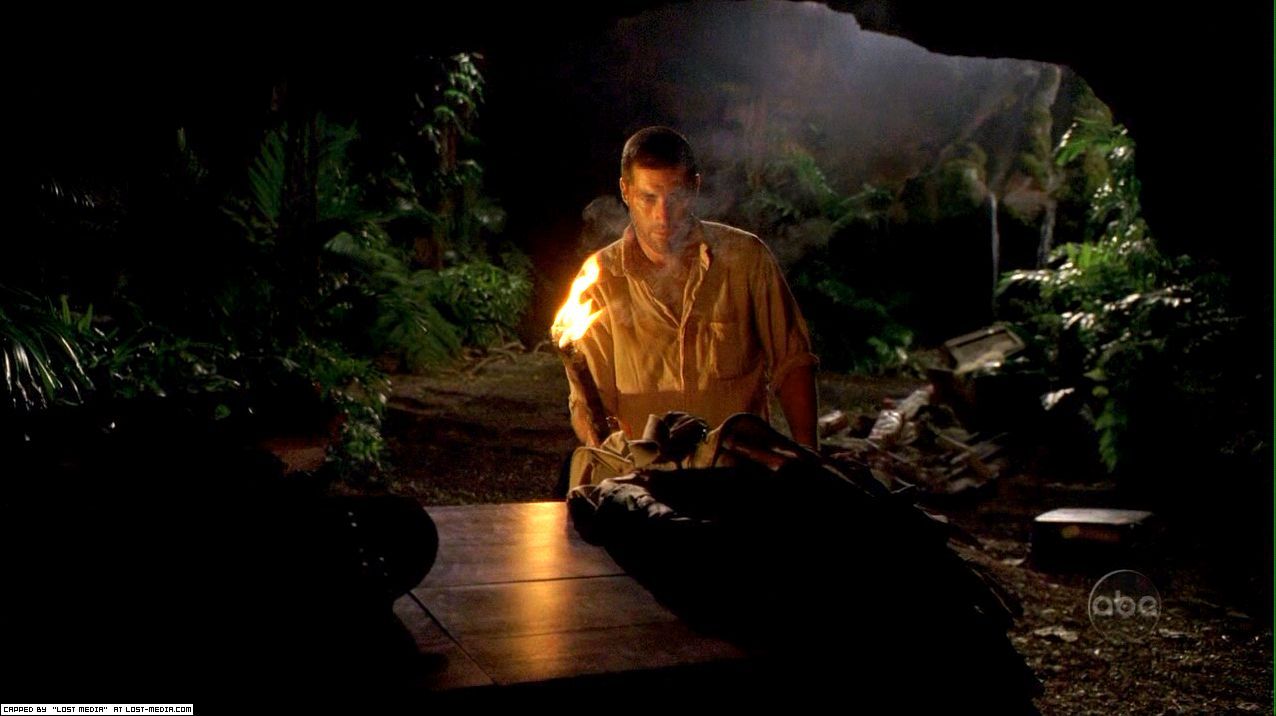
Early in the episode, when Jack is failing to save the drowning swimmer, the shot pulls back as if to show us the viewpoint of an unseen figure who observes very closely...
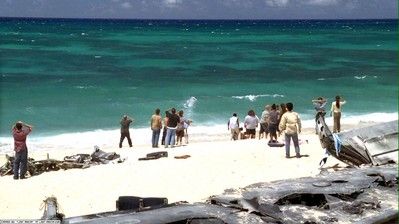
...as Jack fails.
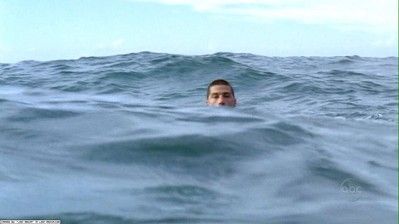
Now the hand of the unseen Father has once again,
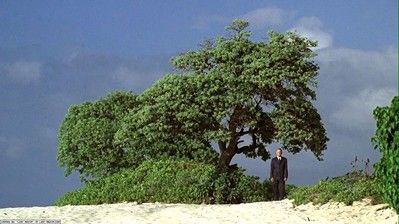
through the barely heard whisper of a mysterious songline,
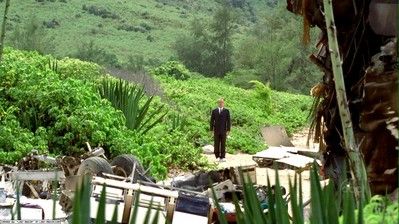
led Jack to the water that will keep them all alive.
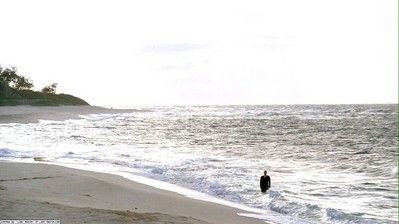
At first he thinks it has also led him to the thing he was really looking for - his father's body. But the grave of the Father is empty.
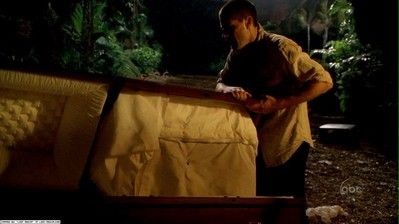
"And he saith unto them, Be not affrighted: Ye seek Jesus of Nazareth, which was crucified: he is risen; he is not here: behold the place where they laid him." - Mark 16:6
Of course Jack is never really alone during any of this. When Jack first spies Christian on the edges of the jungle, he chases him inside only to see him disappear behind a bush...
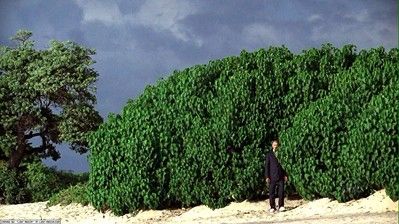
...a bush that seconds later, Locke stumbles out of, wrestling the meat he has just killed to feed the people.
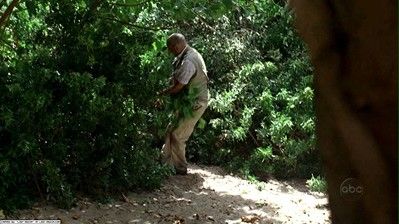
Considering Christian didn't appear to lead Jack to water until after Locke left him alone by the fire, it's fair to ask...did Christian lead Jack to the water, or did Locke? After all, Locke did say very clearly, earlier in the episode, that he knew where the water was. Just what is the connection between Christian Shephard and John Locke? We have seen Jack escort two corpses to the Island, that of his father, and that of Locke.
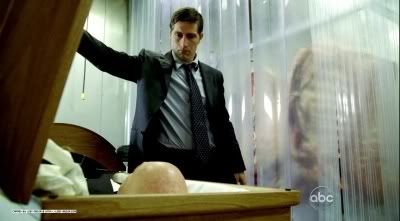
A Father is a Protector, and we have recently learned that What Lies in The Shadow of The Statue
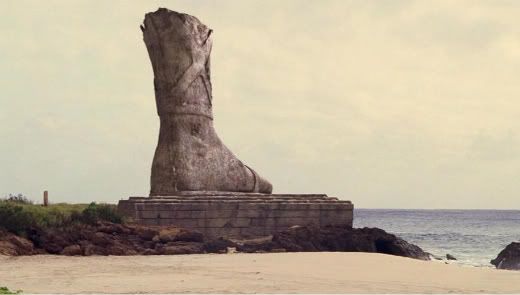
is He Who Protects Us All.
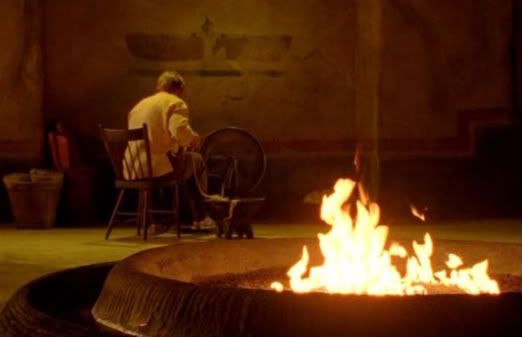
We've got a pretty good sense that the Island houses at least one free floating spirit that can impersonate whoever it chooses, can inhabit any physical shell that Death has turned into a Tabula Rasa. What we don't know, however, is whether this spirit is a good twin or a bad twin, whether it's a God
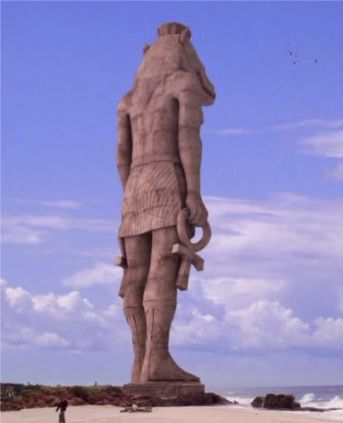
or a Monster.
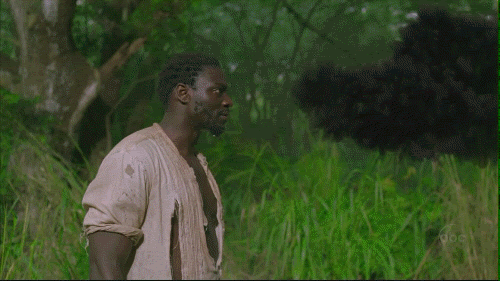
When Jack is chasing his White Rabbit, he calls out to him, "Who are you?"
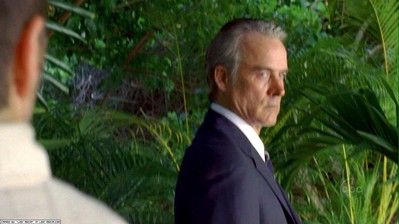
The same thing Eko called as he chased the mirage of his brother Yemi.
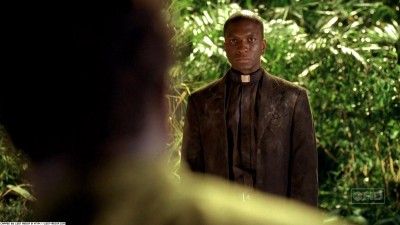
Who are you?
That's the million dollar question. At one point, Jack tells Kate very matter of factly, "Three days ago, we all died". I didn't take that literally when I first heard it. Probably no one did. It seemed like another one of those drippy motivational lines in one of those many, many lame JackandKateSitandTalk scenes that are littered throughout the early episodes. But what if that's exactly what it meant?
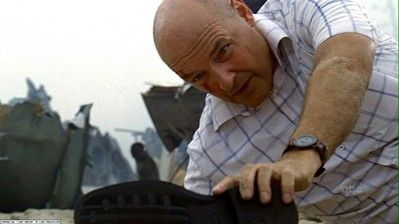
When Locke wakes up, his shoe is off. He struggles to grab it and put it on. I'm not sure of this one, but don't dead men wear no shoes?
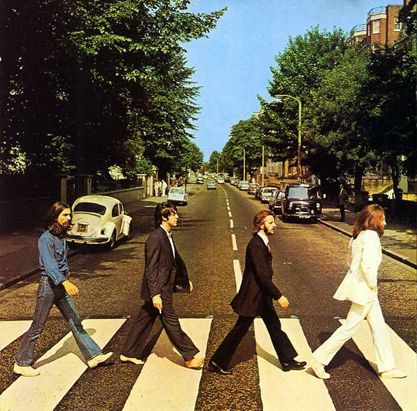
There's a Twilight zone episode where a bum puts on the shoes of a murdered man and is inhabited by the dead man's vengeful spirit. "Who are you?" is a question maybe we should have been asking all along.
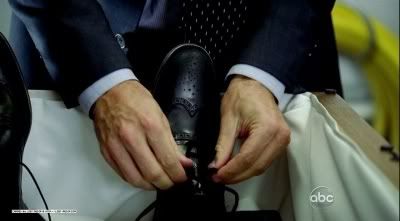
"For should the soul of a prince enter and inform the body of a cobbler, as soon as deserted by his own soul, everyone sees he would be the same person with the prince, accountable only for the prince's actions; but who would say it was the same man?" - John Locke, On Identity
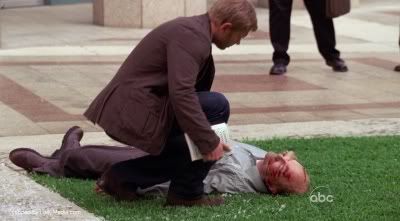
Is it possible, just maybe, that the Locke we've known has always been dead? Since the fall from the window. Or since the plane crash. Or since his mama got hit by a car and then gave birth when she was only a few months pregnant. There's always been something magical about Locke. How many times has he died and come back to life, really? A commenter at my blog (thanks J. Hall, great pickup!) mentioned the possibility that Locke's eye scars mark him as the Norse god, Odin.
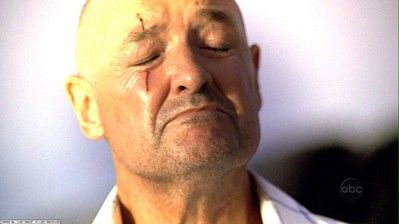
It's definitely an interesting concept. I realize the writers seem to have settled on the Egyptian motif for their ancient, pre-Abrahamic deities, but the Norsemen's Odin is a god that makes a very neat fit with our man Locke. He's the god of Poetry but also the god of the Hunt.
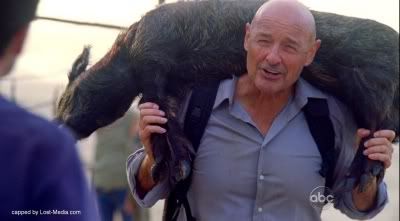
And the Spear.
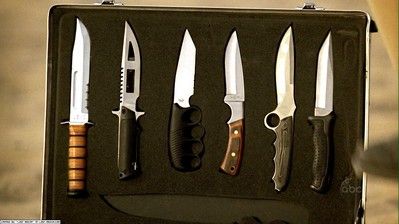
And of War.
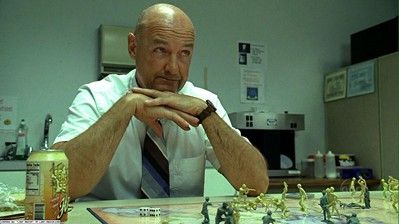
He hung himself for nine days from Yggdrasil (literal translation “Odin’s horse”), the sacred Tree of the World, the Tree of Life.
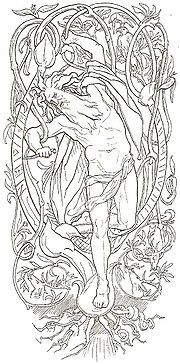
But Odin, like our good John Locke, was alive again after that long death.
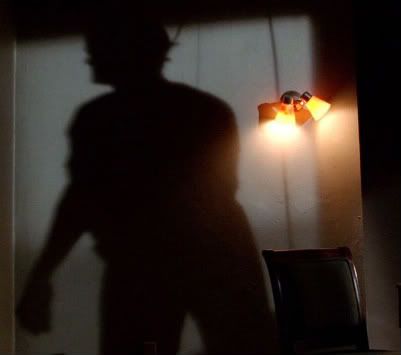
So Odin, like many of mankind's most popular gods, from Bacchus to Christ, is a god of resurrection, a god that dies and lives again. He's also a shapeshifter, who takes on the appearance of both people and animals.
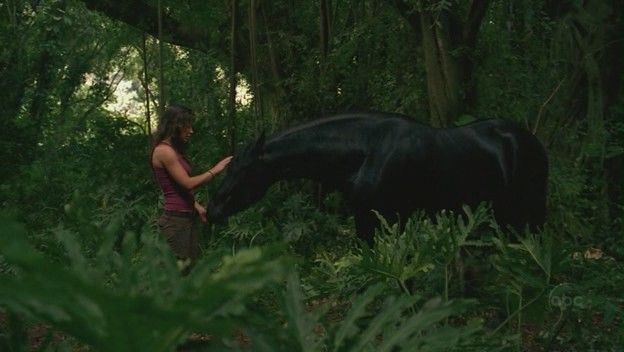
What's more, Odin is a one-eyed God, having sacrificed his eye to the Well of Wisdom, in return for...wisdom, I guess.
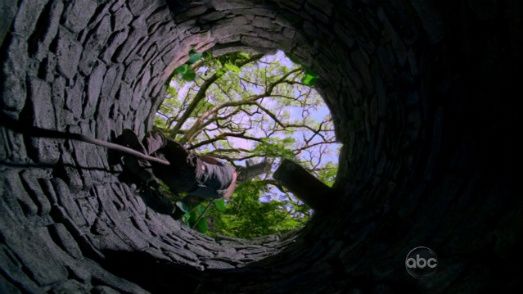
And eyes, single eyes, eyes being opened, are maybe the single most identifiable motif in the whole grand tapestry of Lost images.
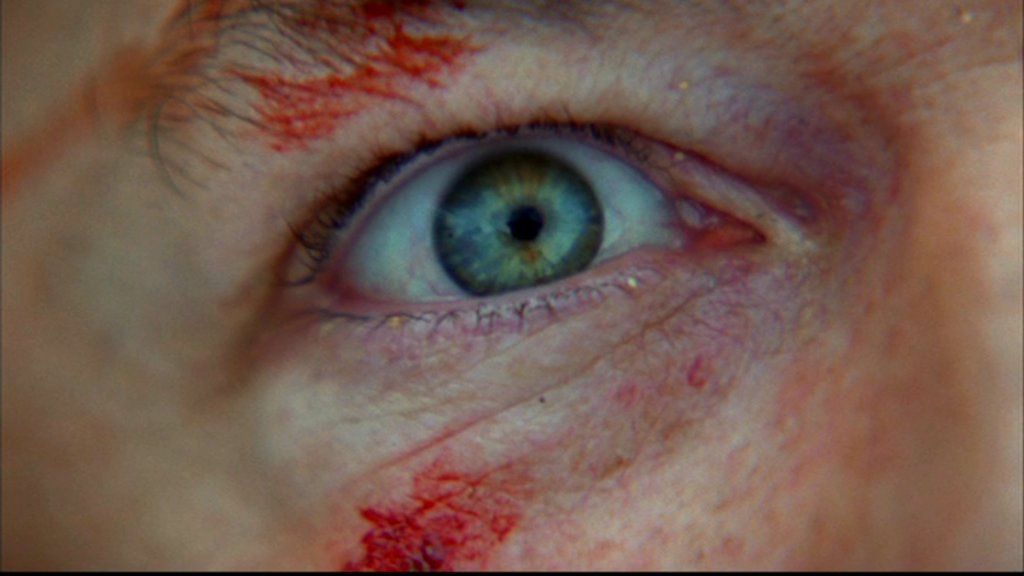
What does it mean when an eye opens?
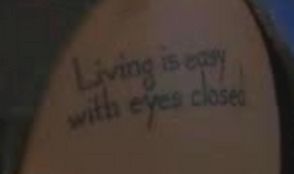
Well, it means that you have to see reality, for one thing. You can't be lost in illusions, trying to take the easy way out. And yet we're in the middle of a story that feels most of the time like one big grand illusion. One that gets curiouser and curiouser by the year. When Locke is waylaid by the Smoke Monster on his Walkabout, he escapes unharmed.
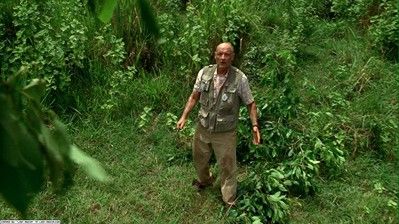
He looks terrified.
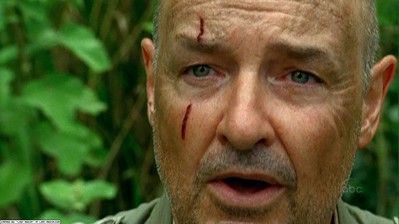
But he says later that he has looked into the Eye of the Island and he saw that it was beautiful. It's a fascinating idea, that the fearsome, terrifying Monster is described by Locke as an Eye. A beautiful one. It adds another layer of potential to the eyes that we are so used to seeing on Lost. On Jacob's tapestry, the Eye of Horus, the symbol of Ra's protection and power, watches over the blank human slates who seem to be lined up against one another on opposite sides. What Game is being played with the human playing pieces? We don't know yet. We just have to wait and see it all play out. Like most games, the rules are probably very simple.
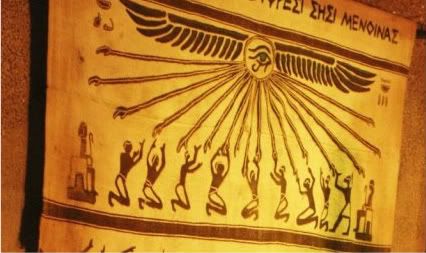
"Begin at the beginning,", the King said, very gravely, "and go on till you come to the end: then stop.”
We can do that. Read more...